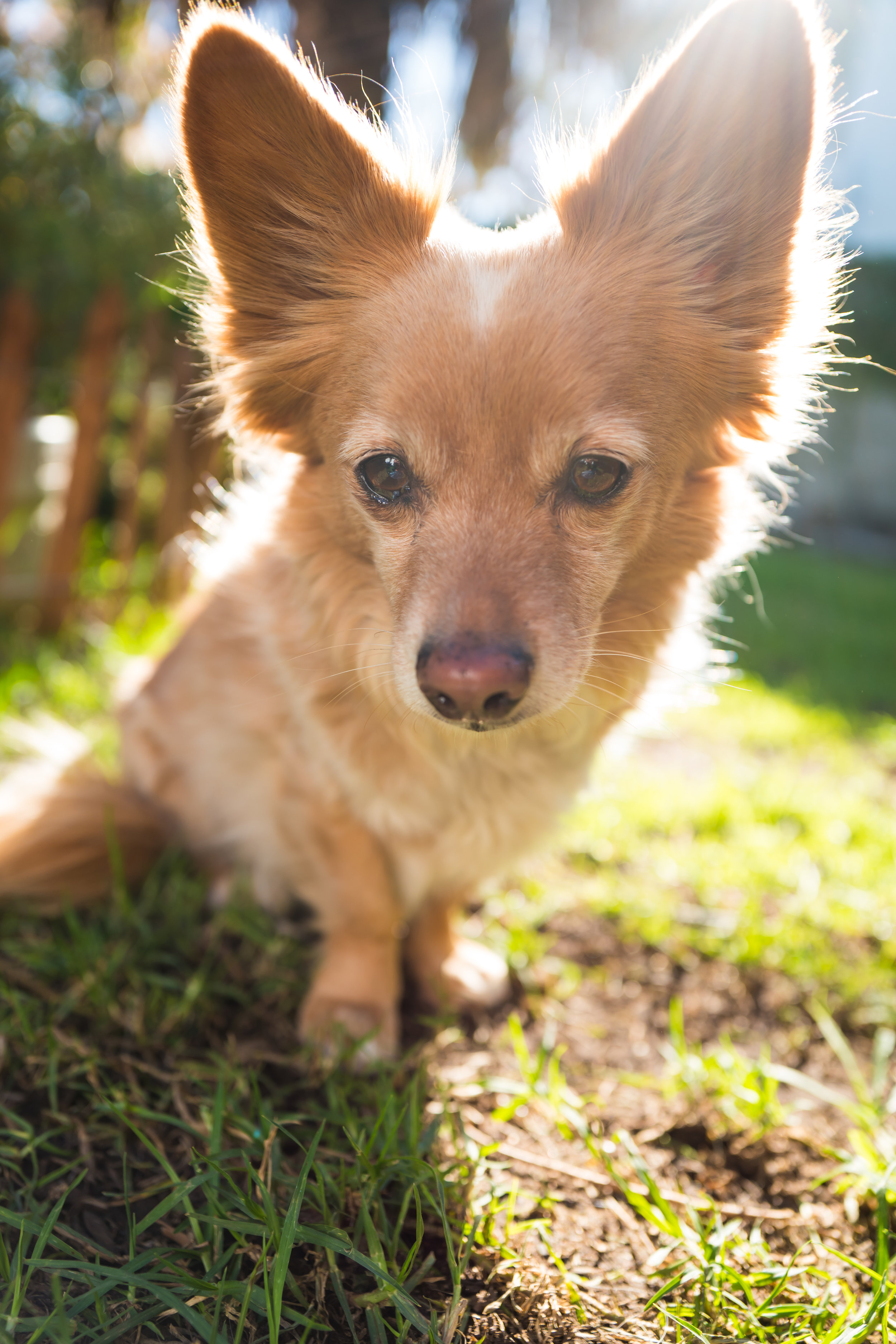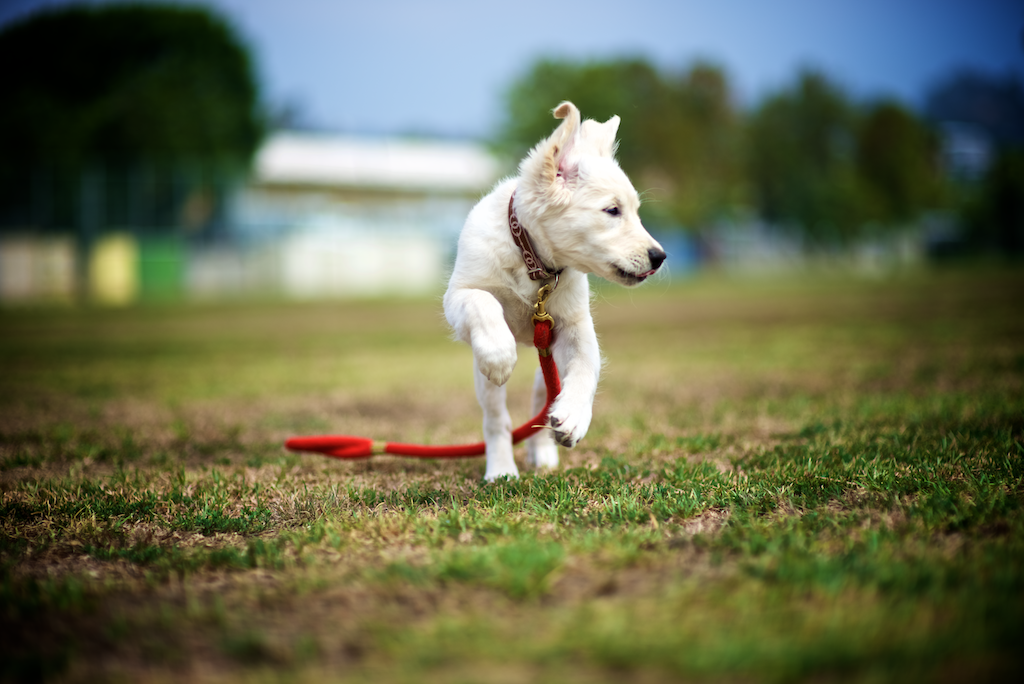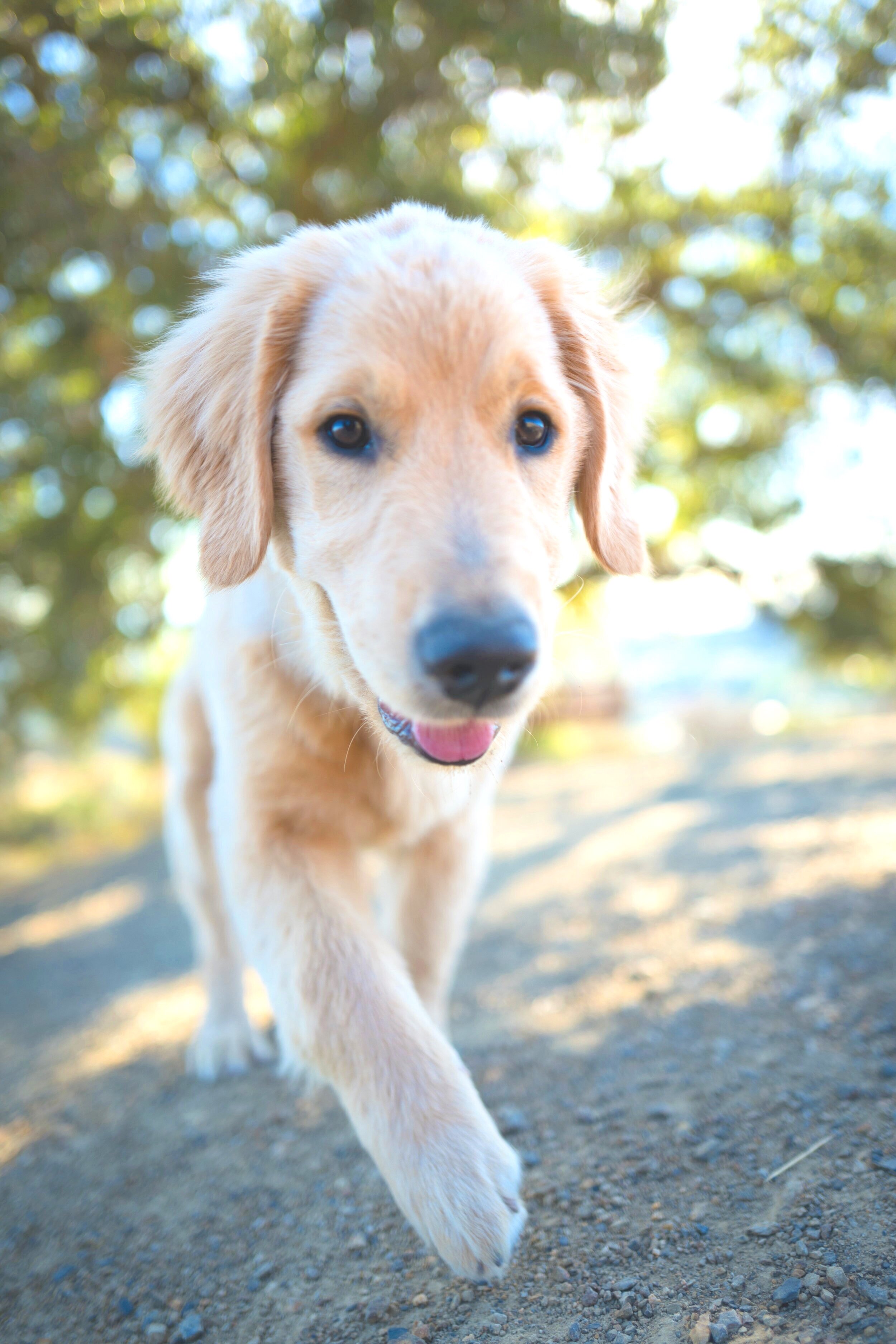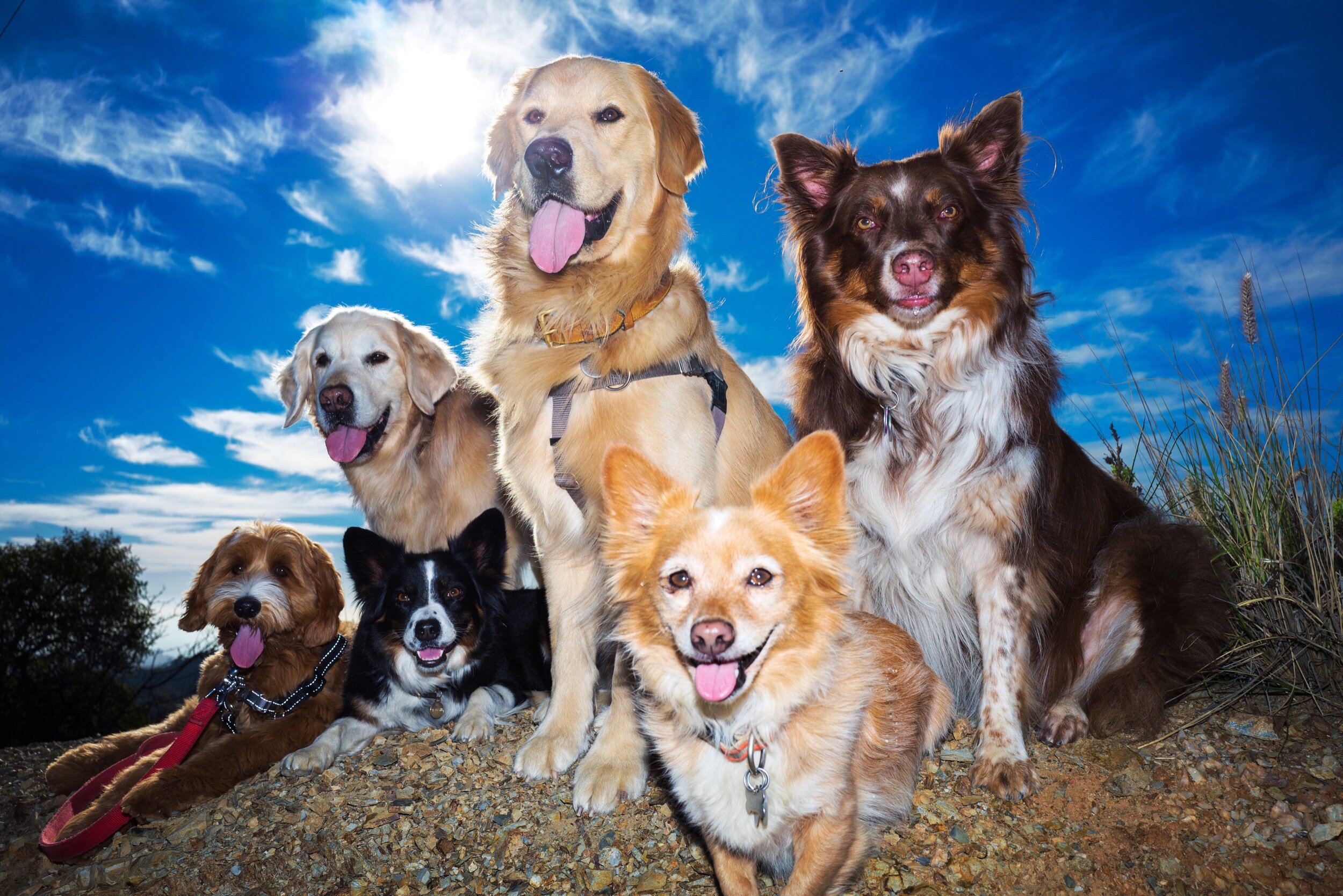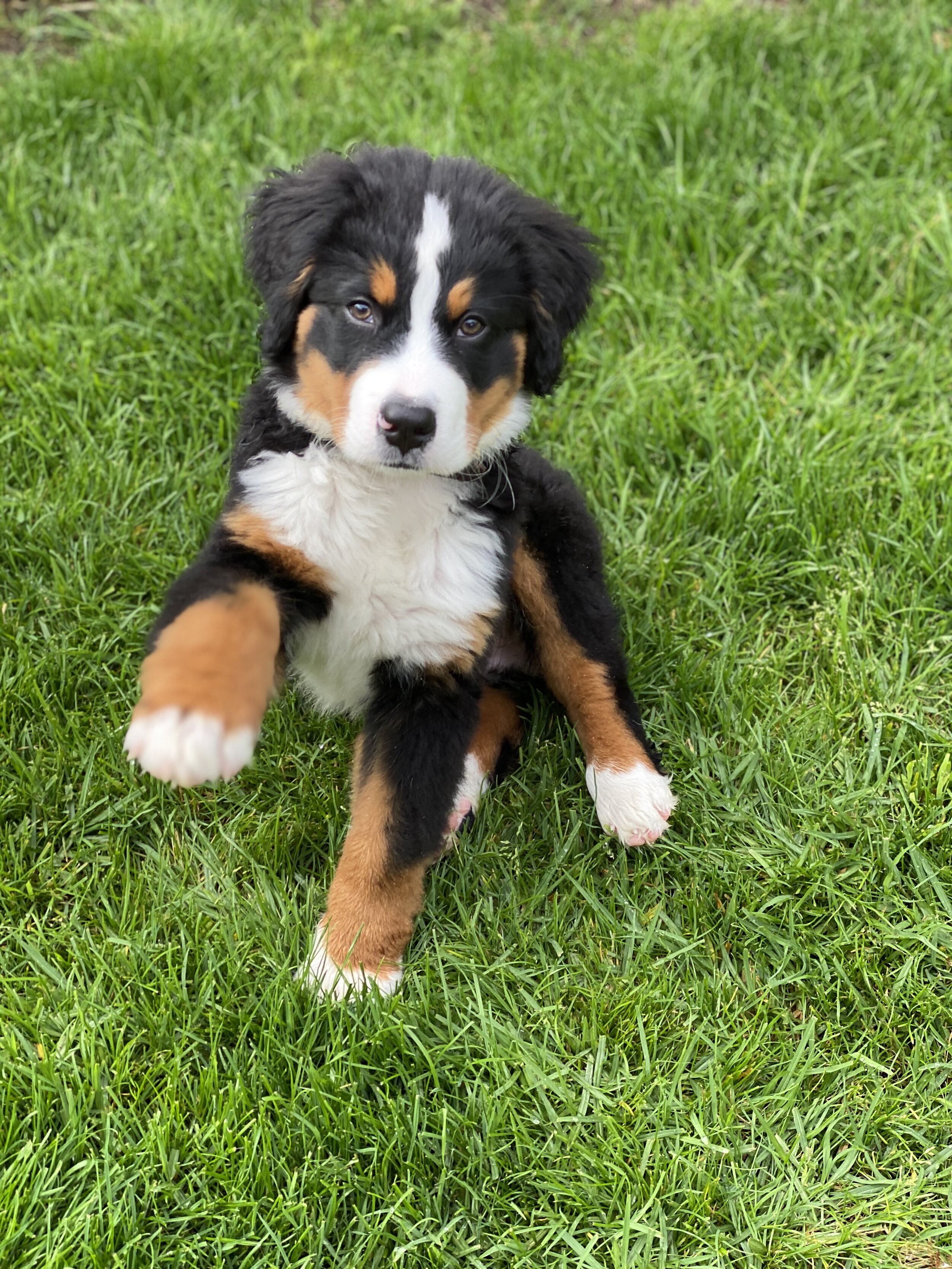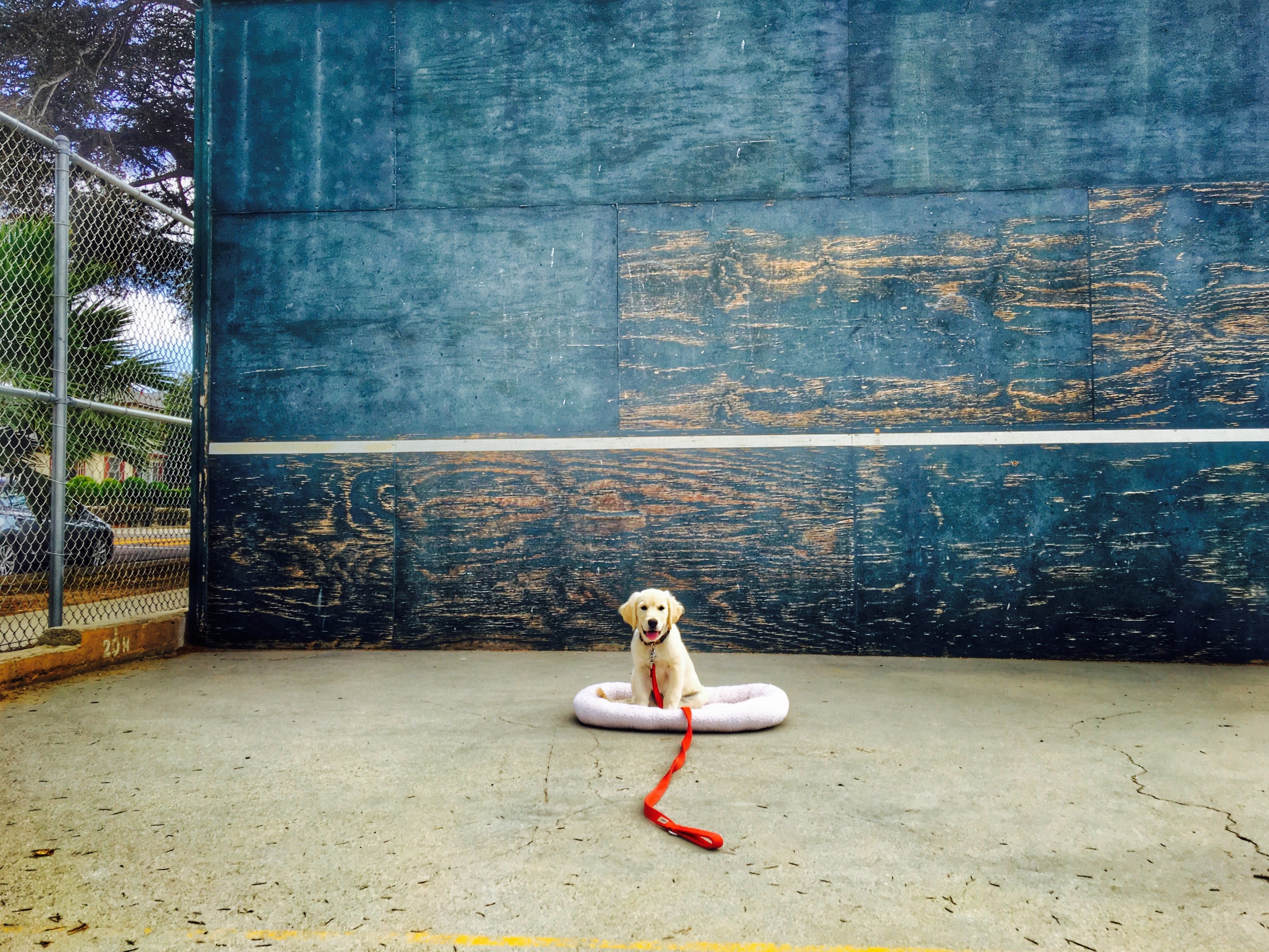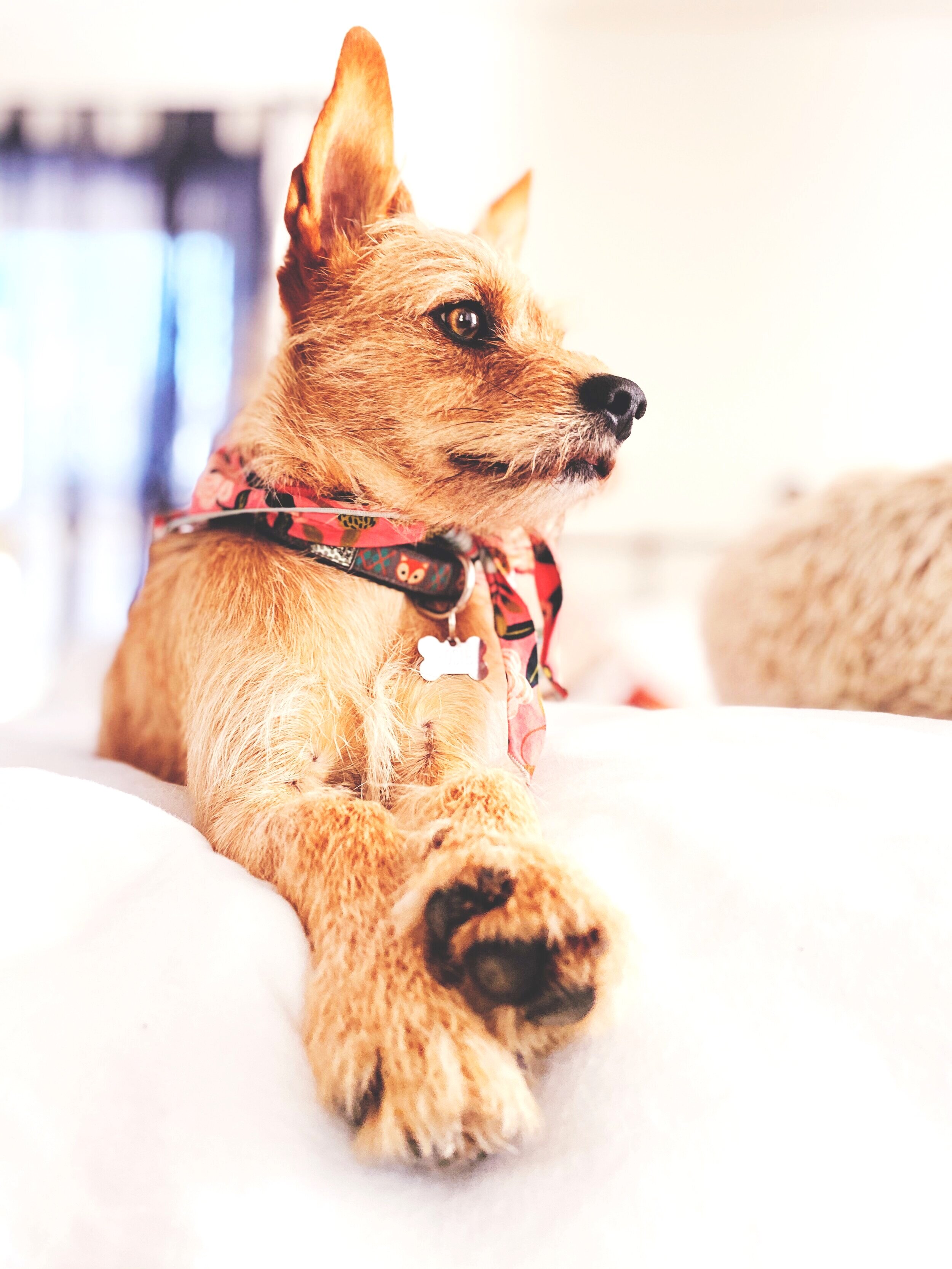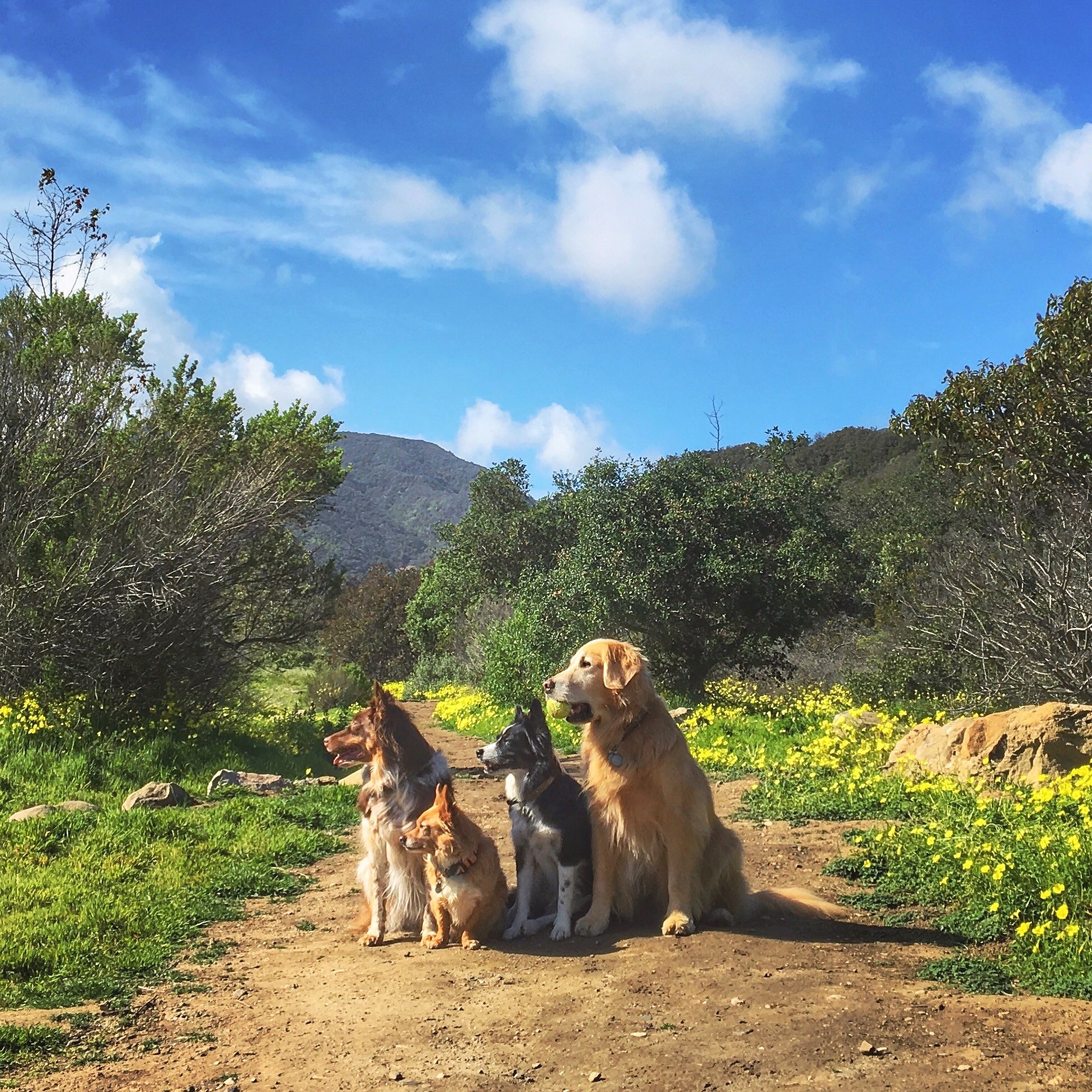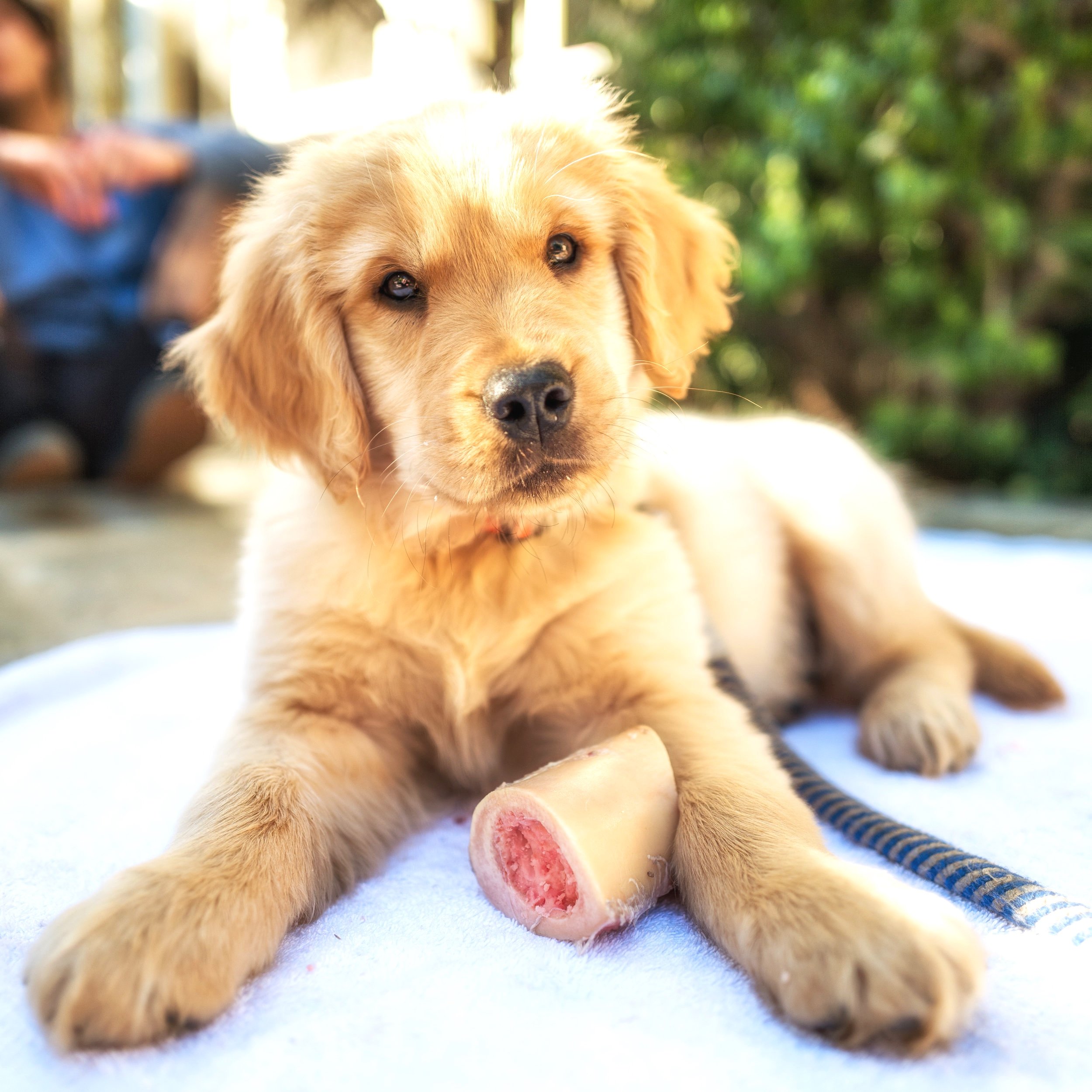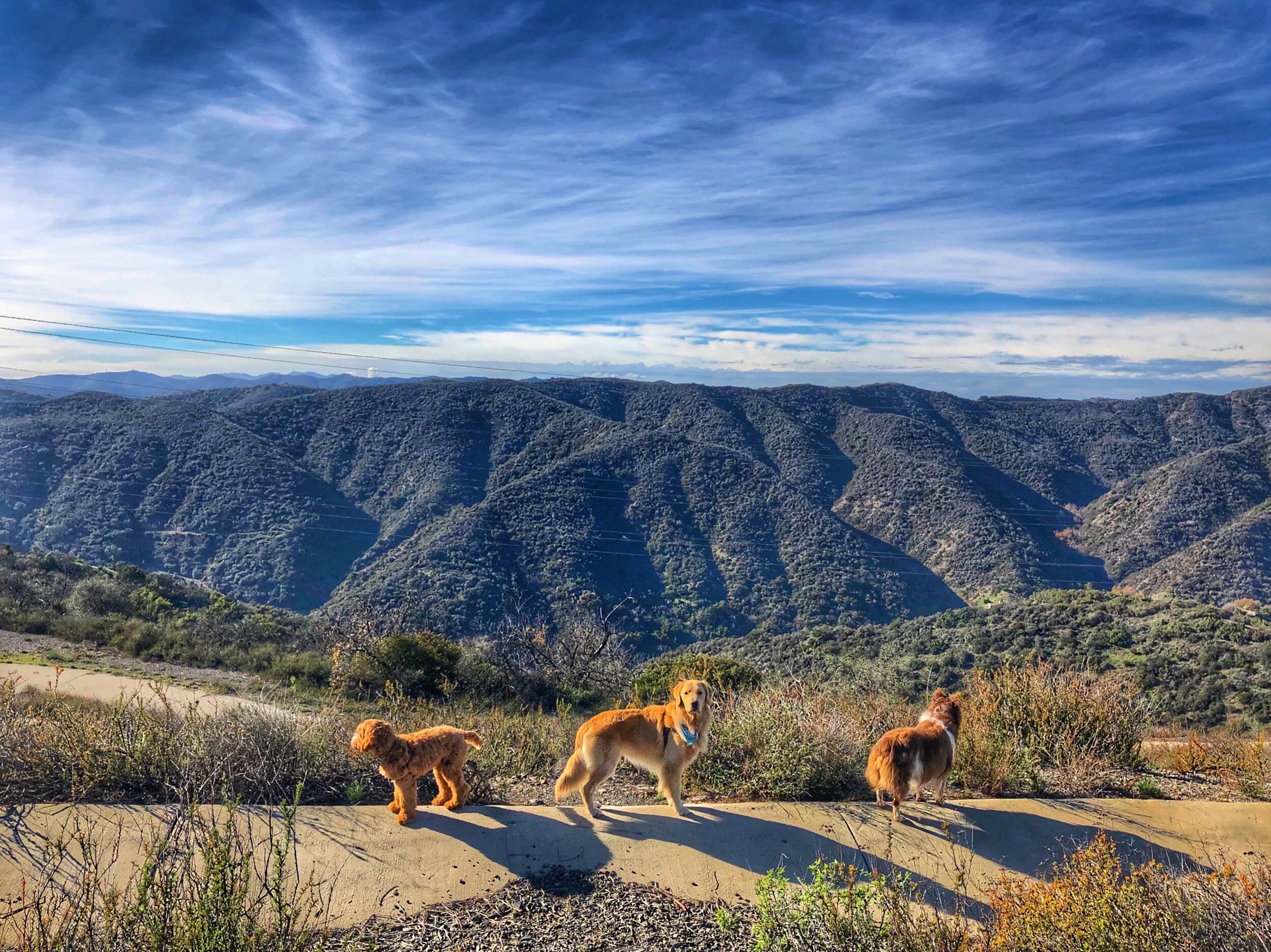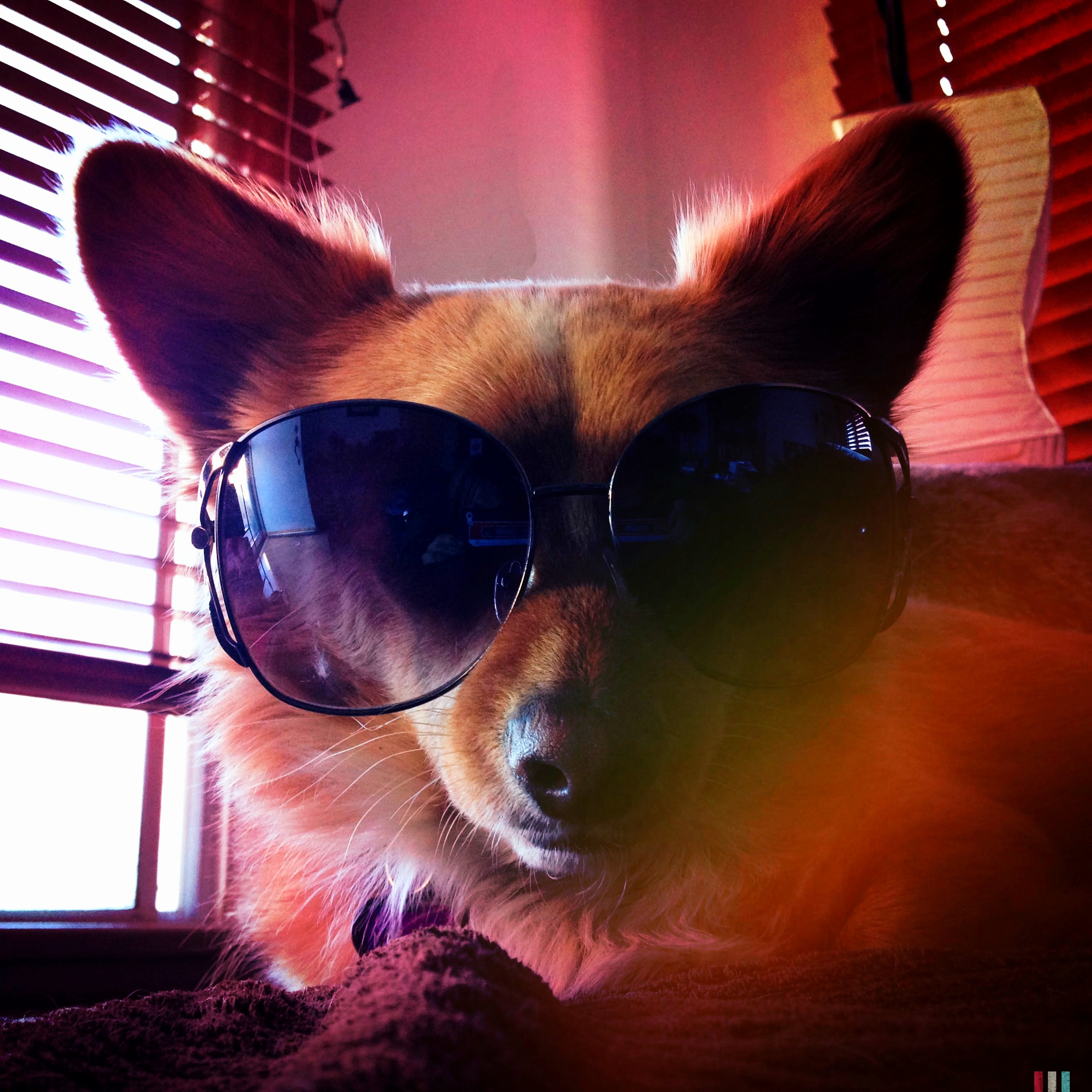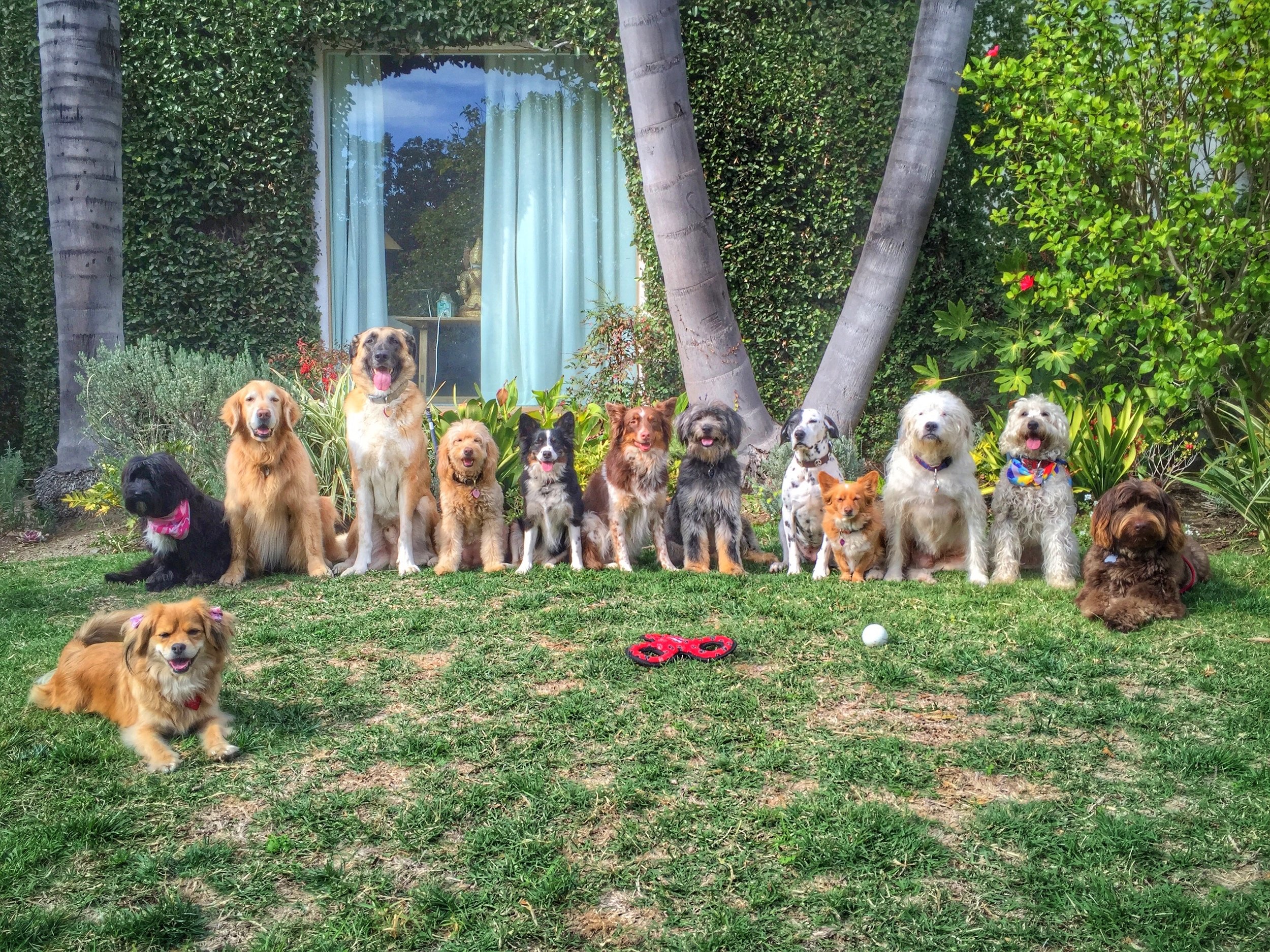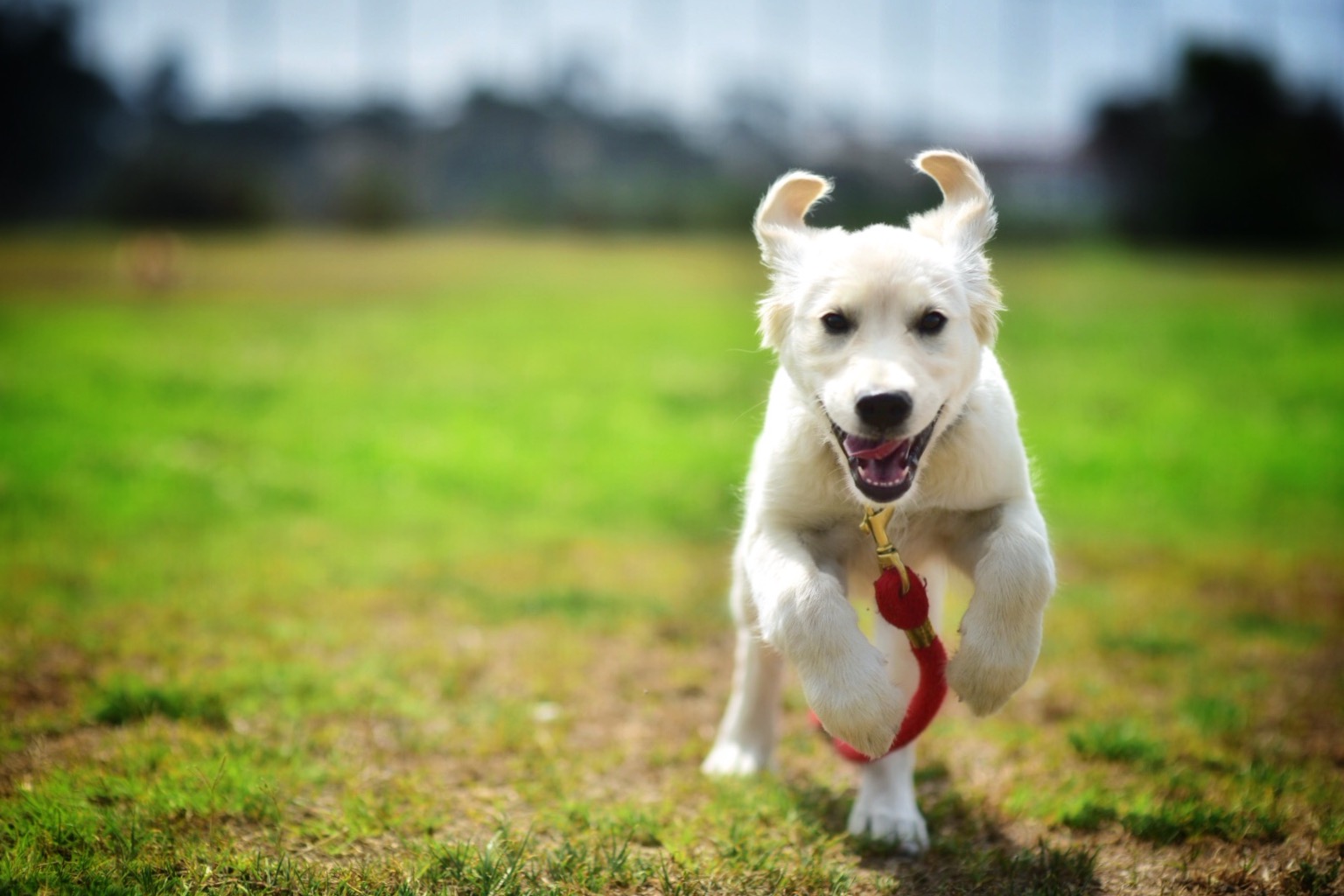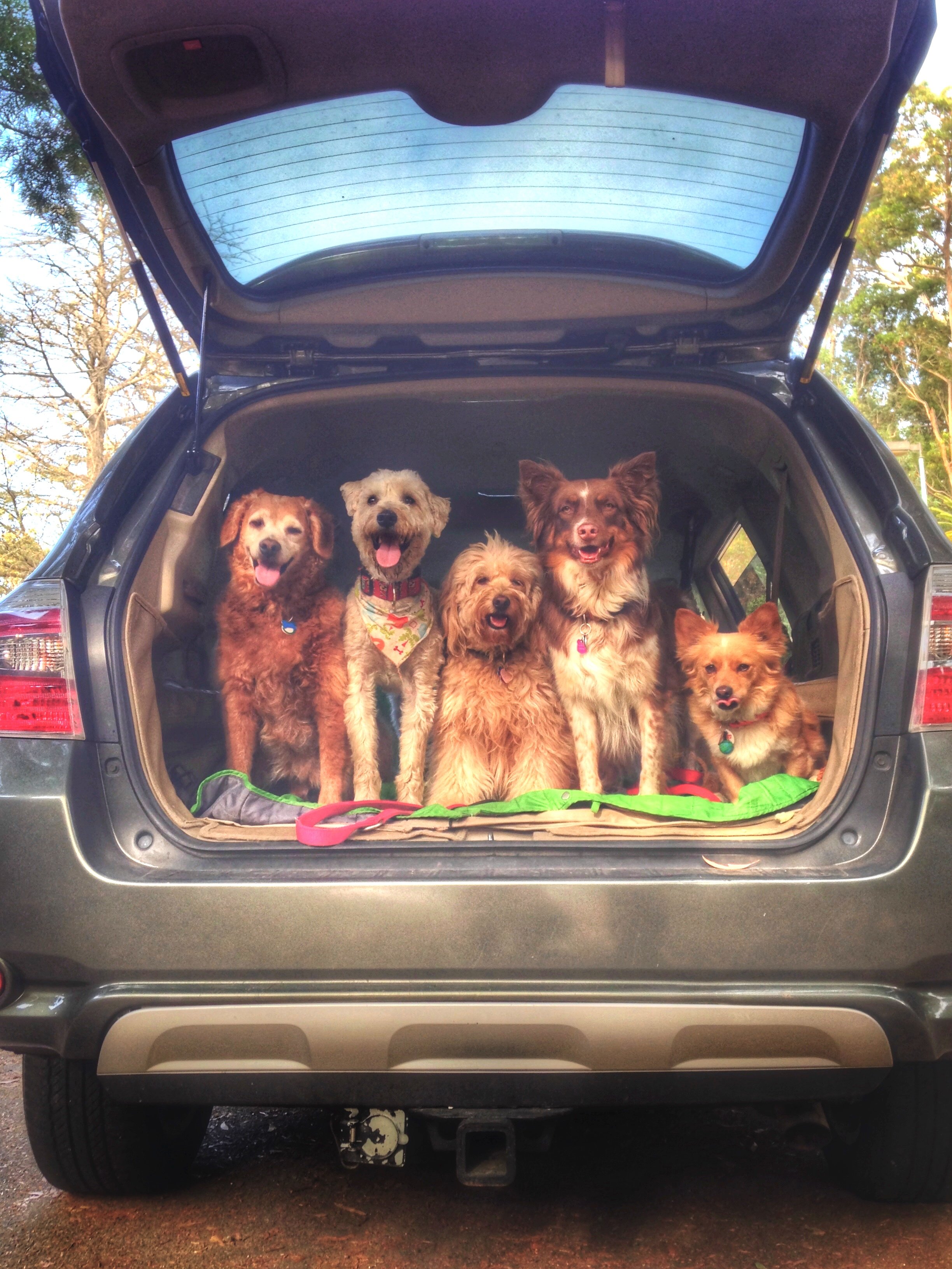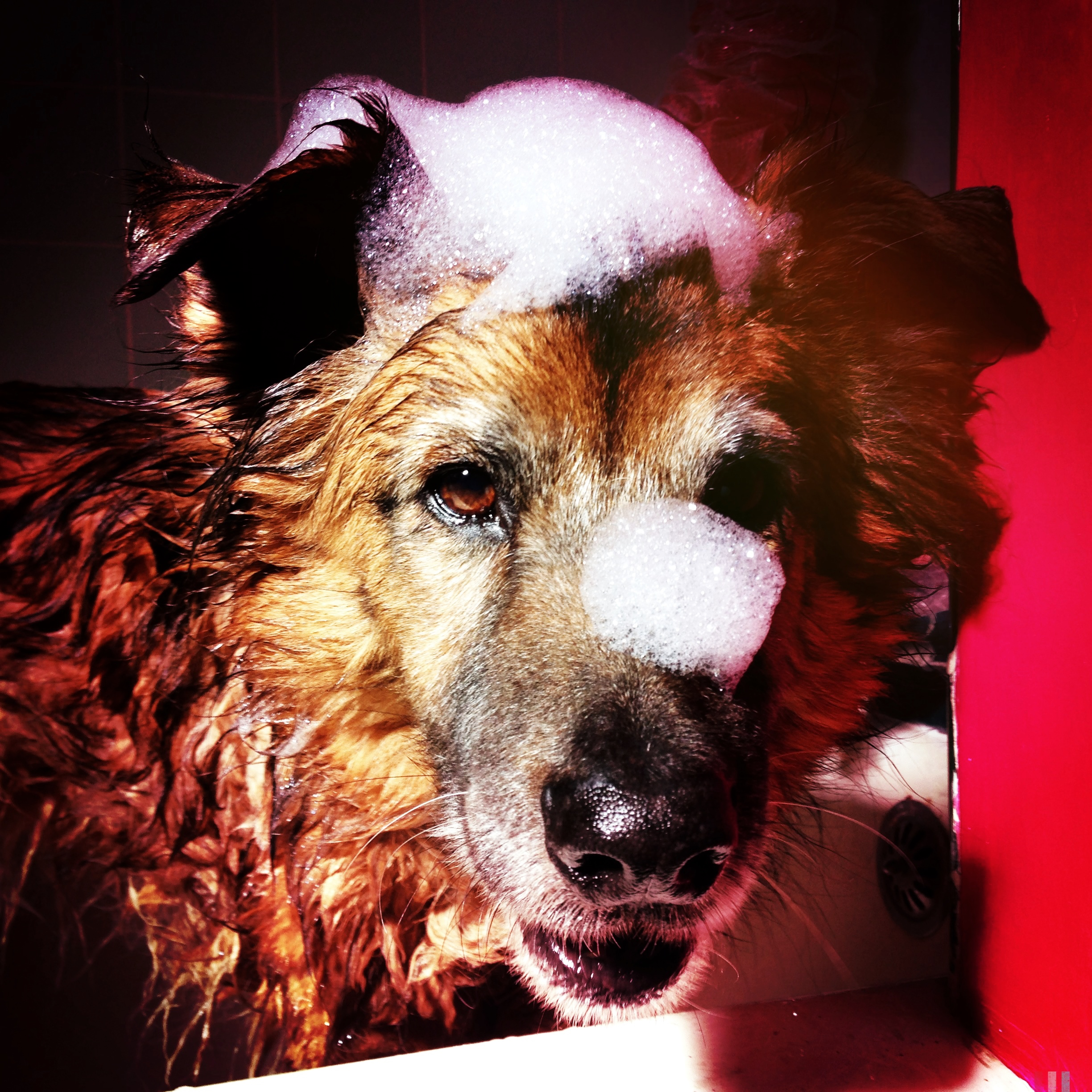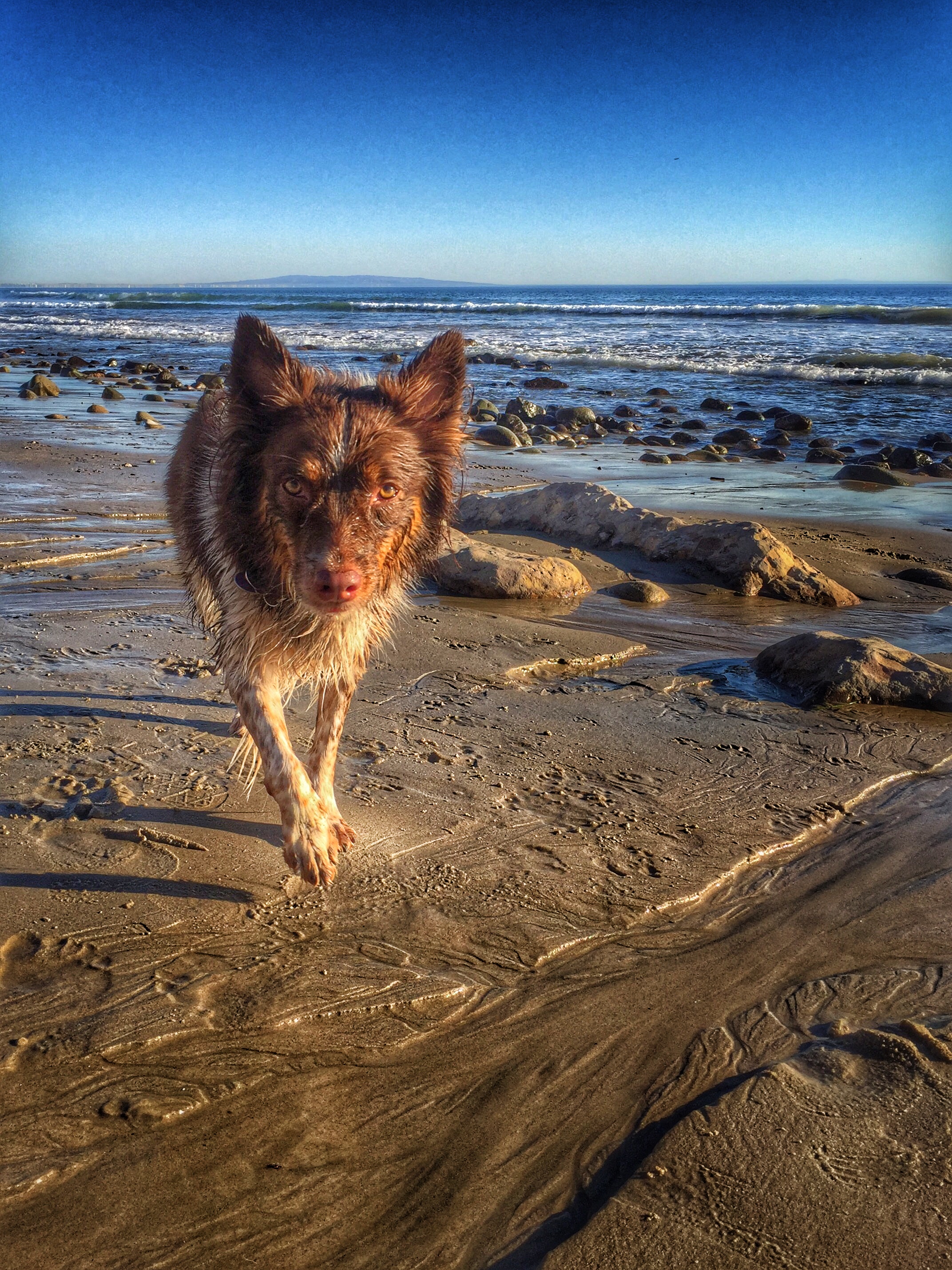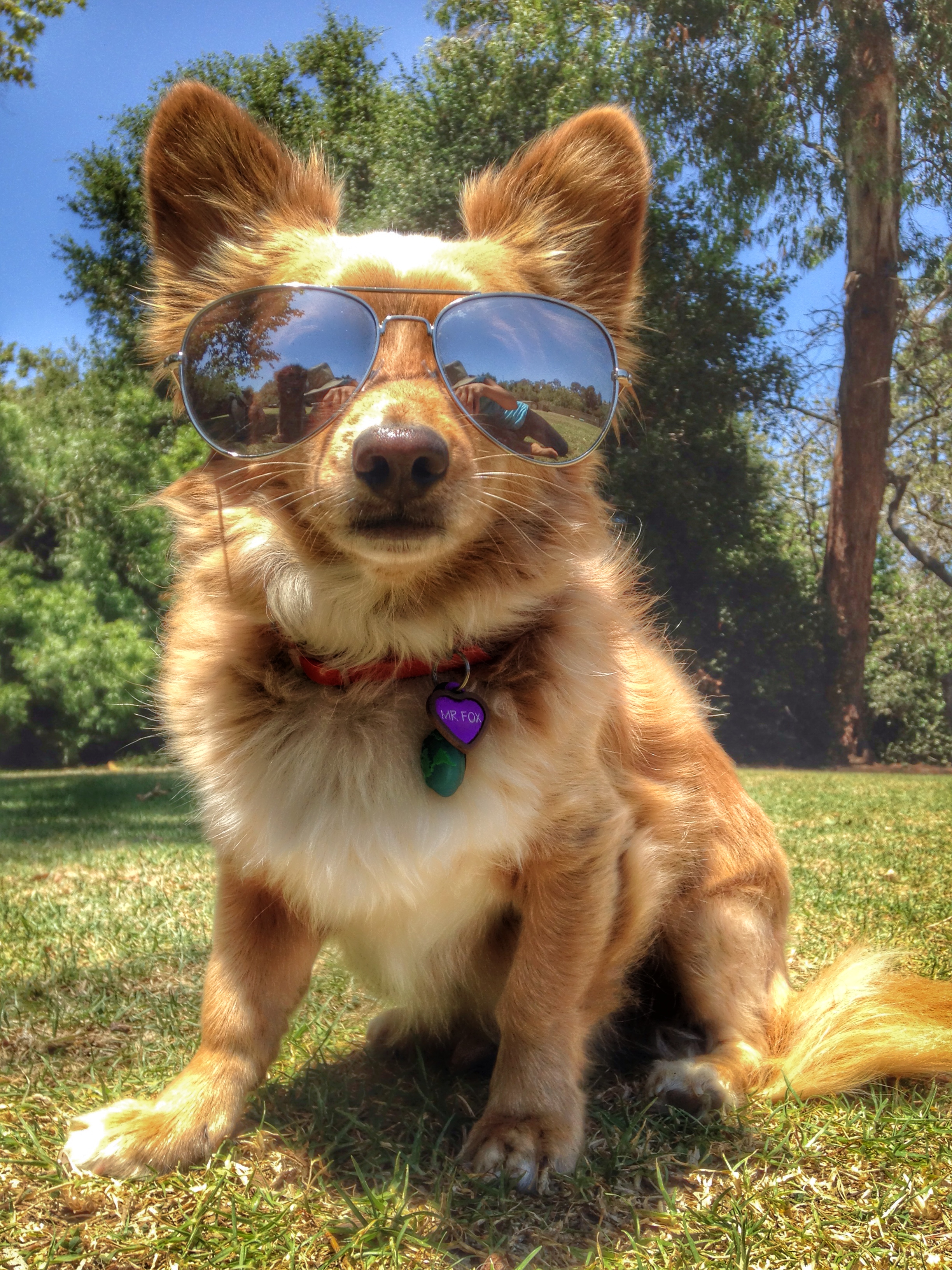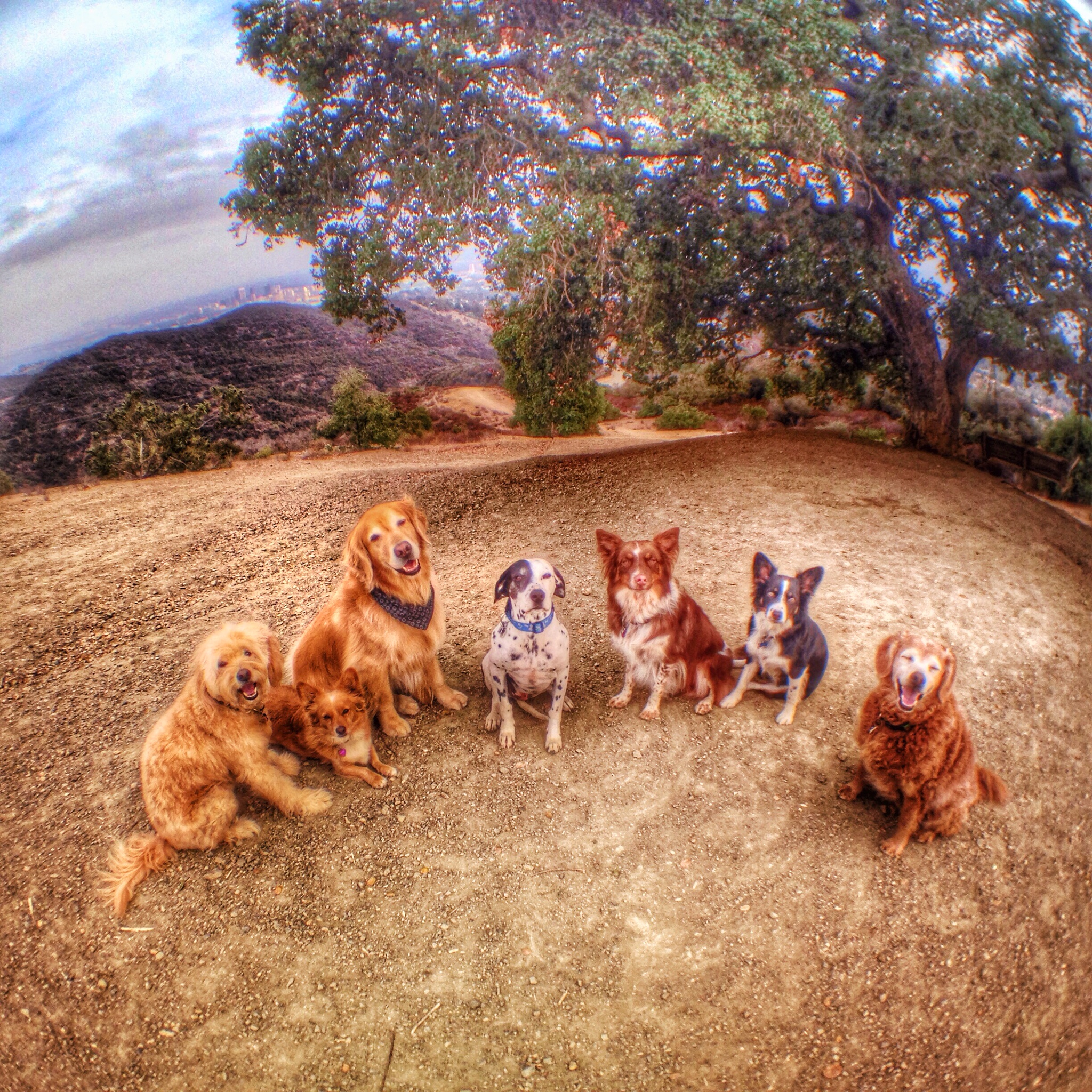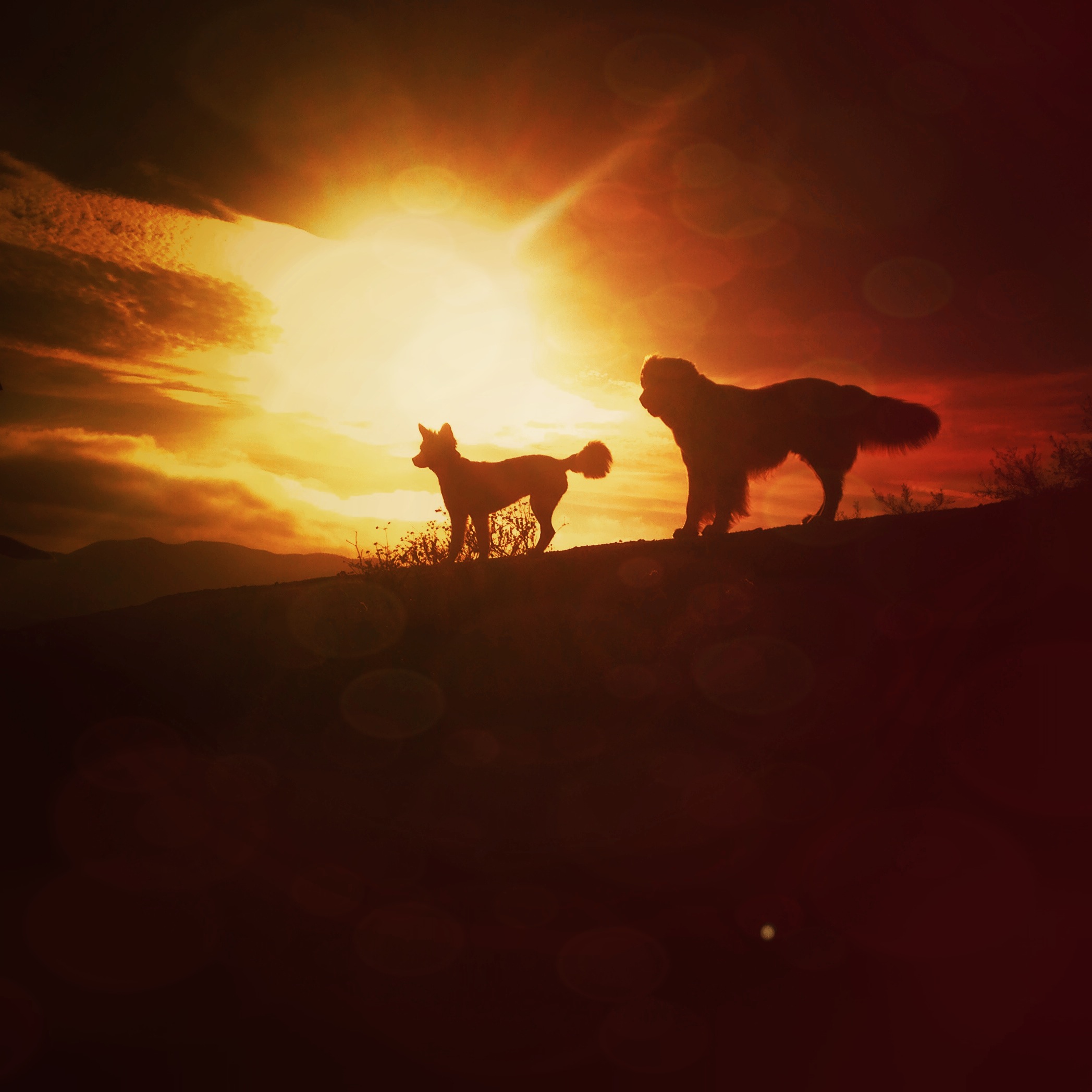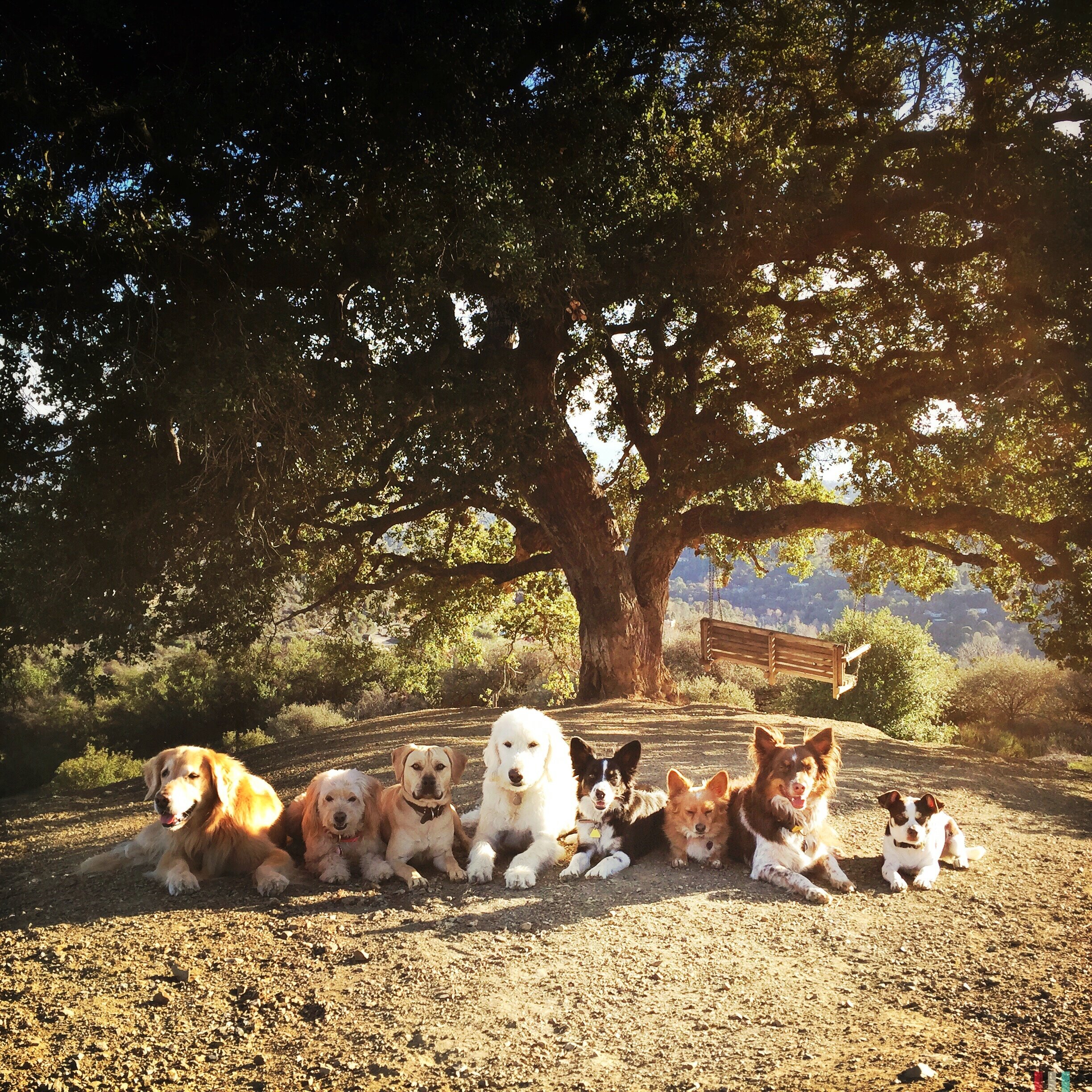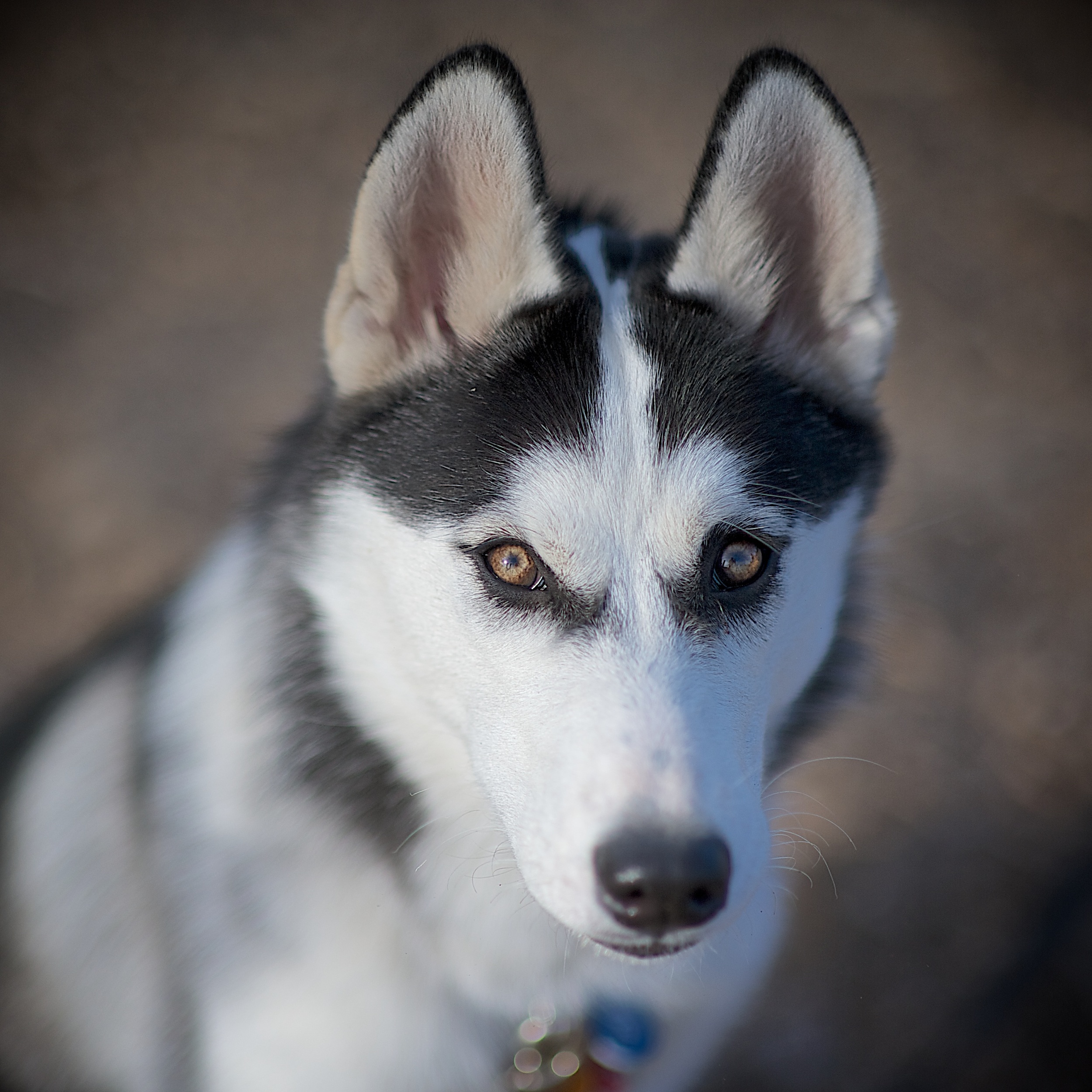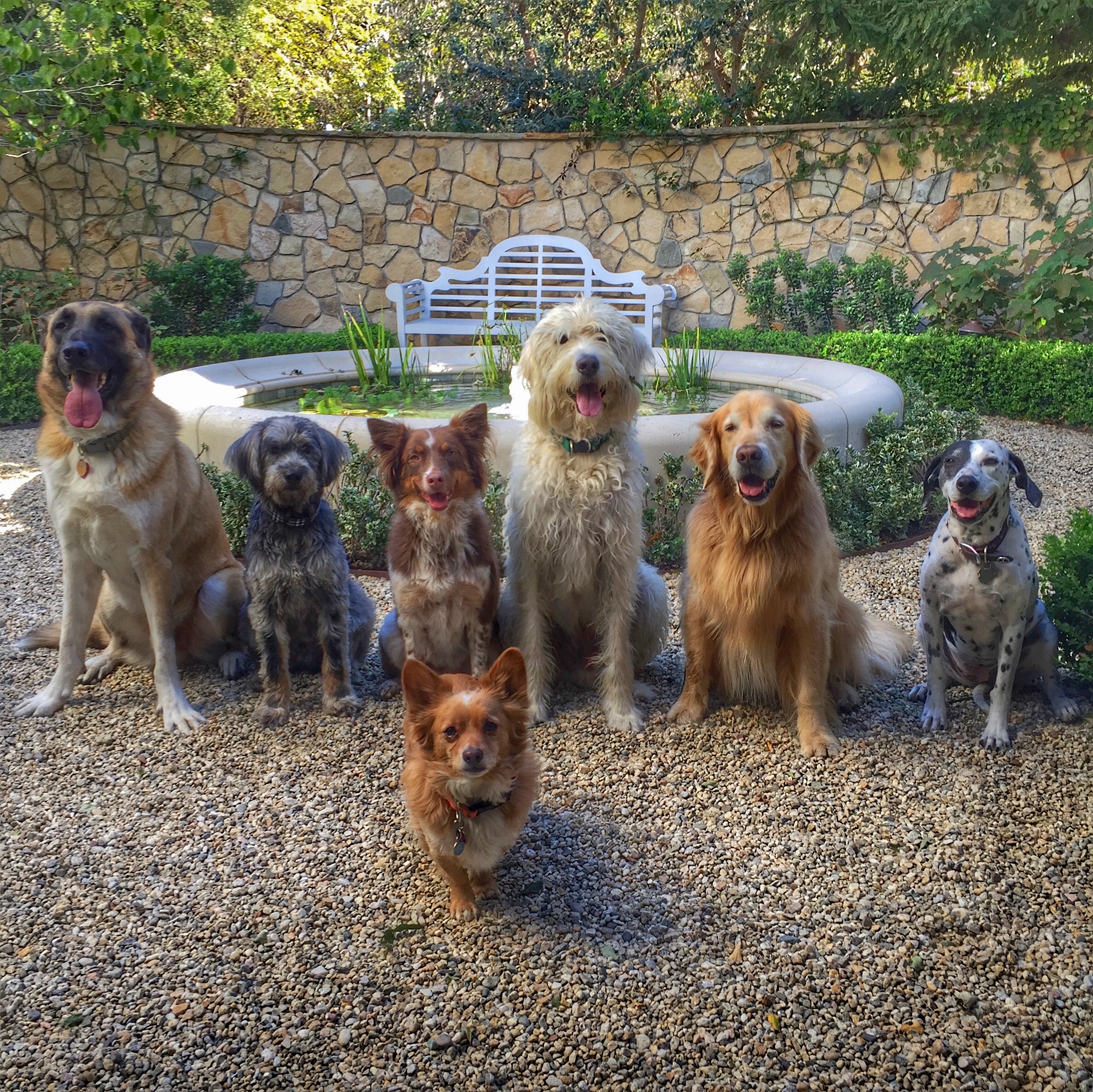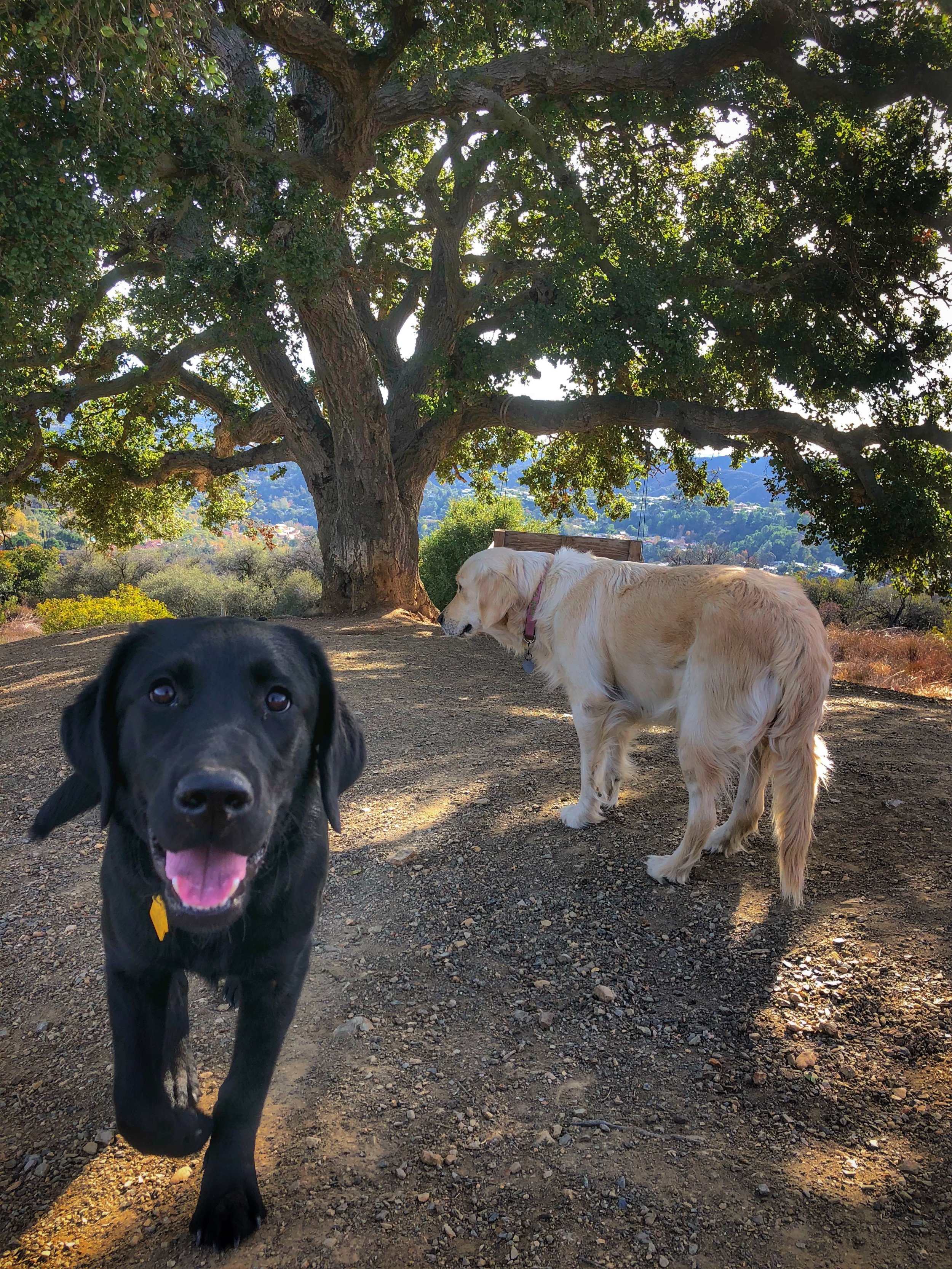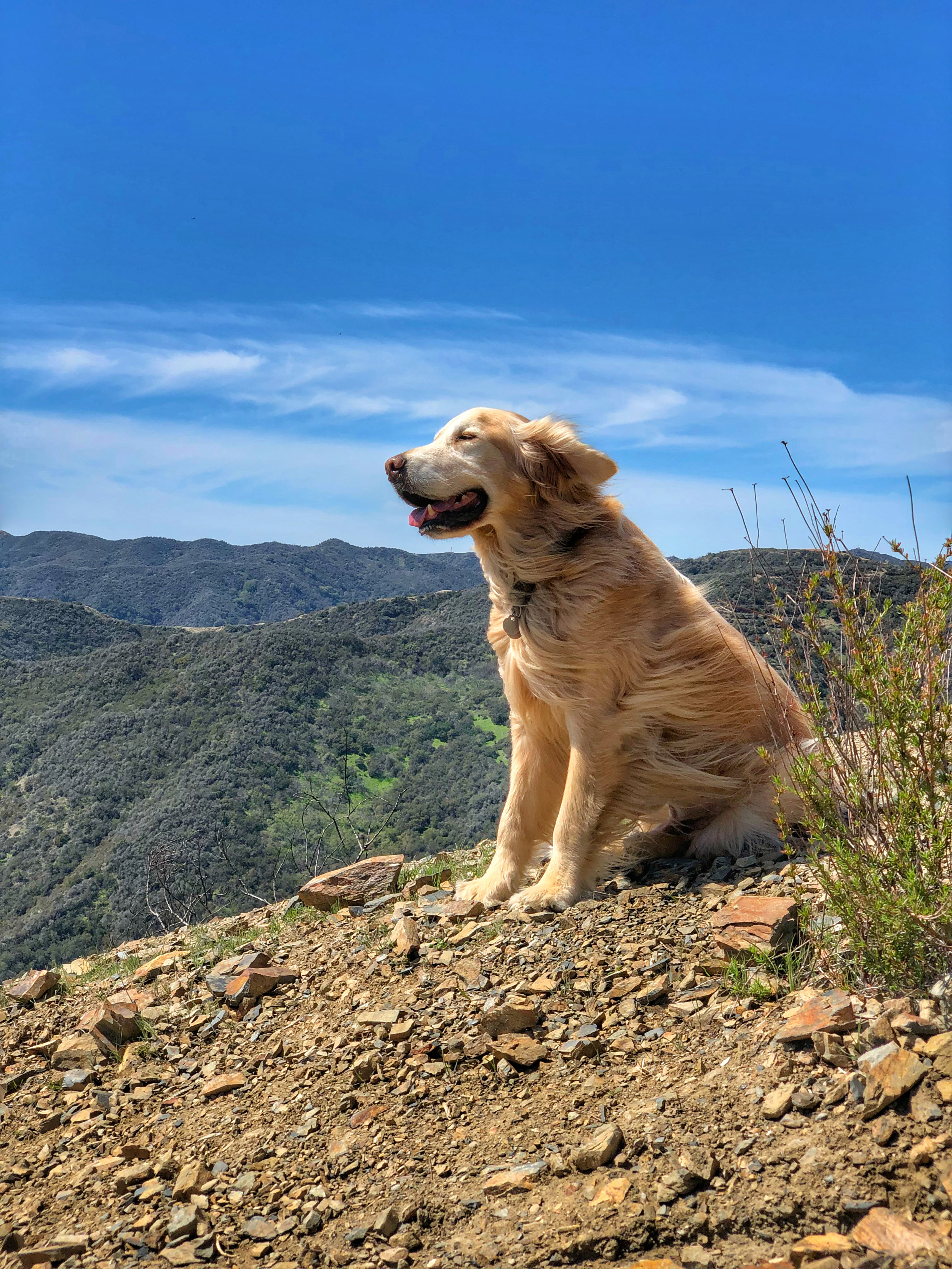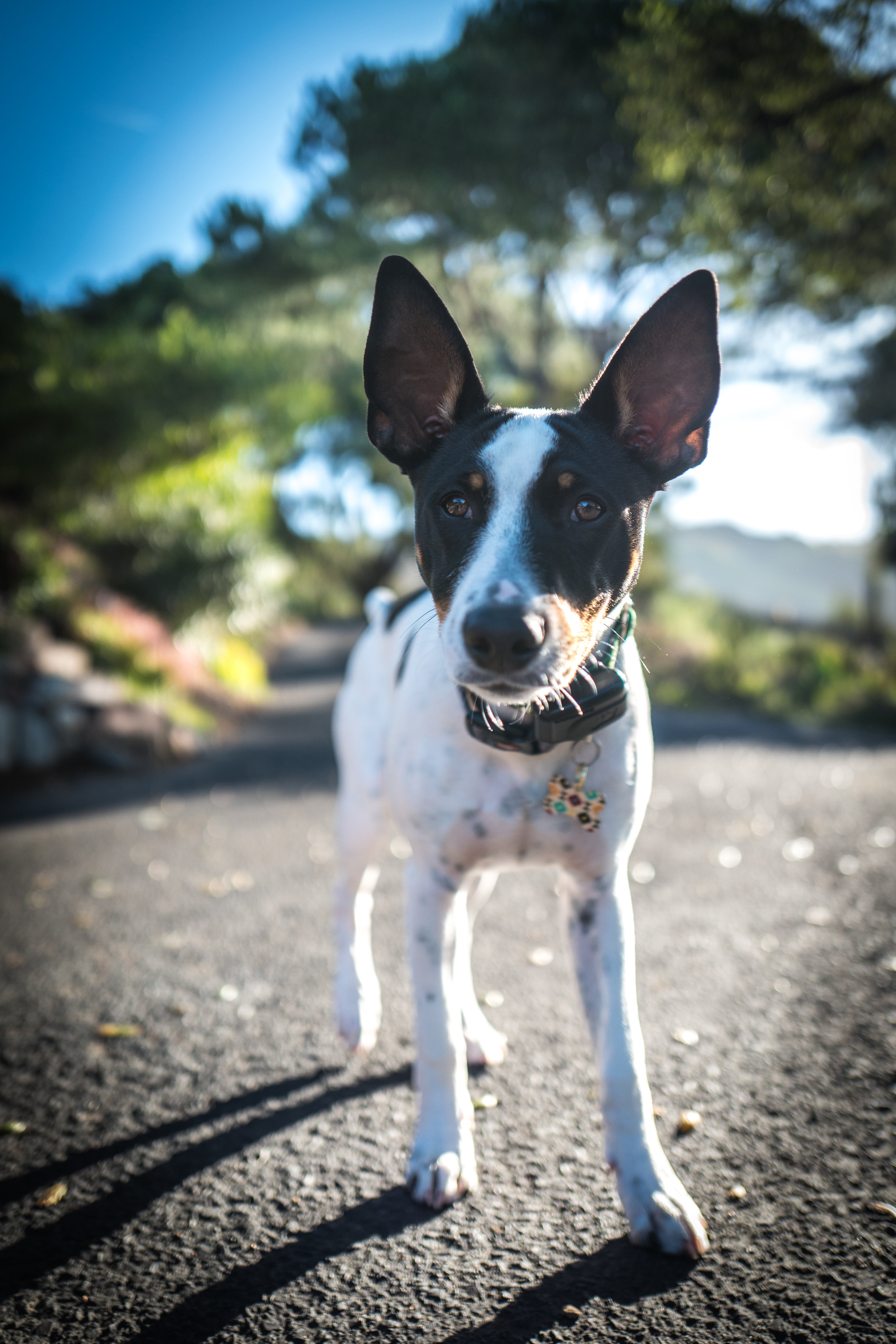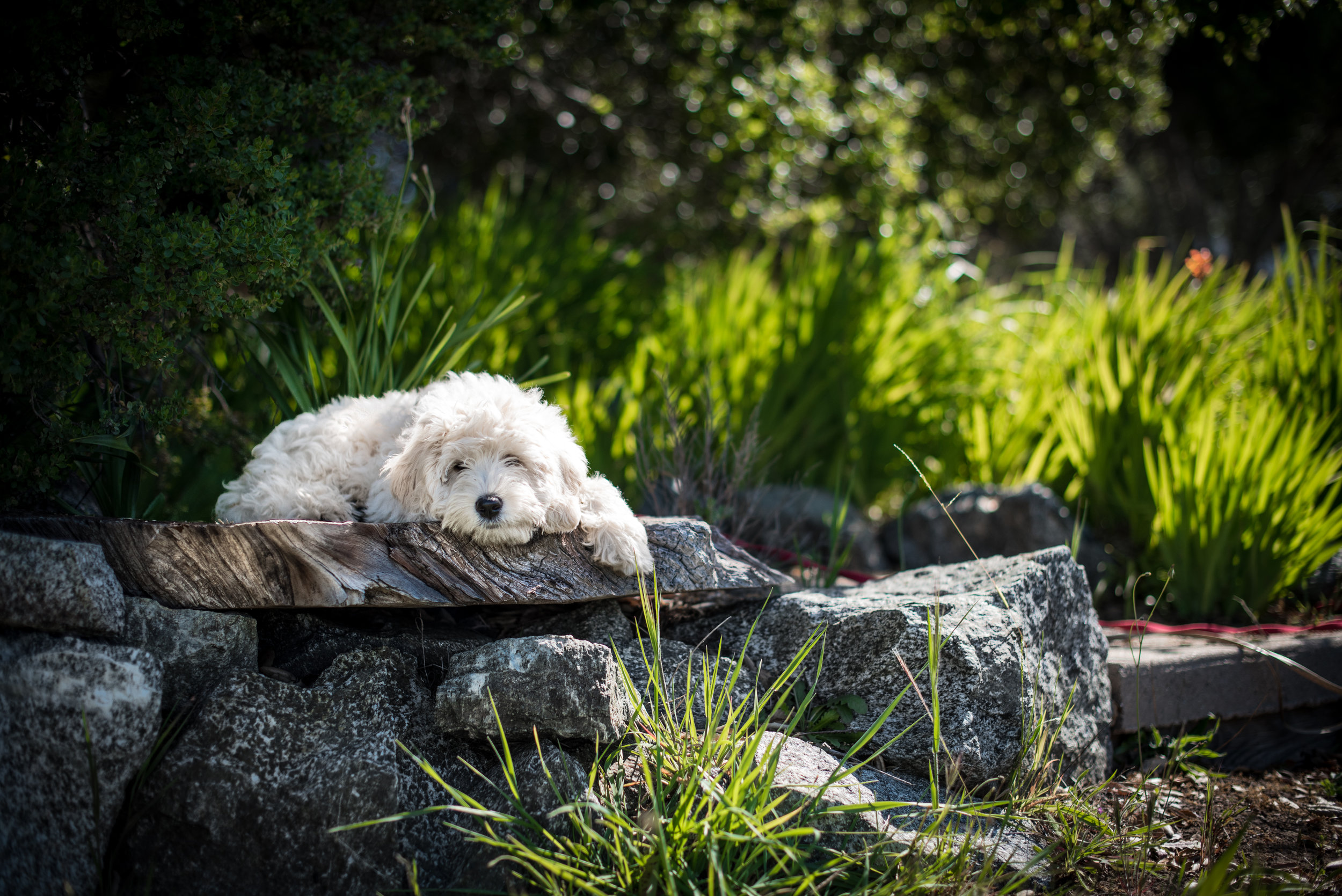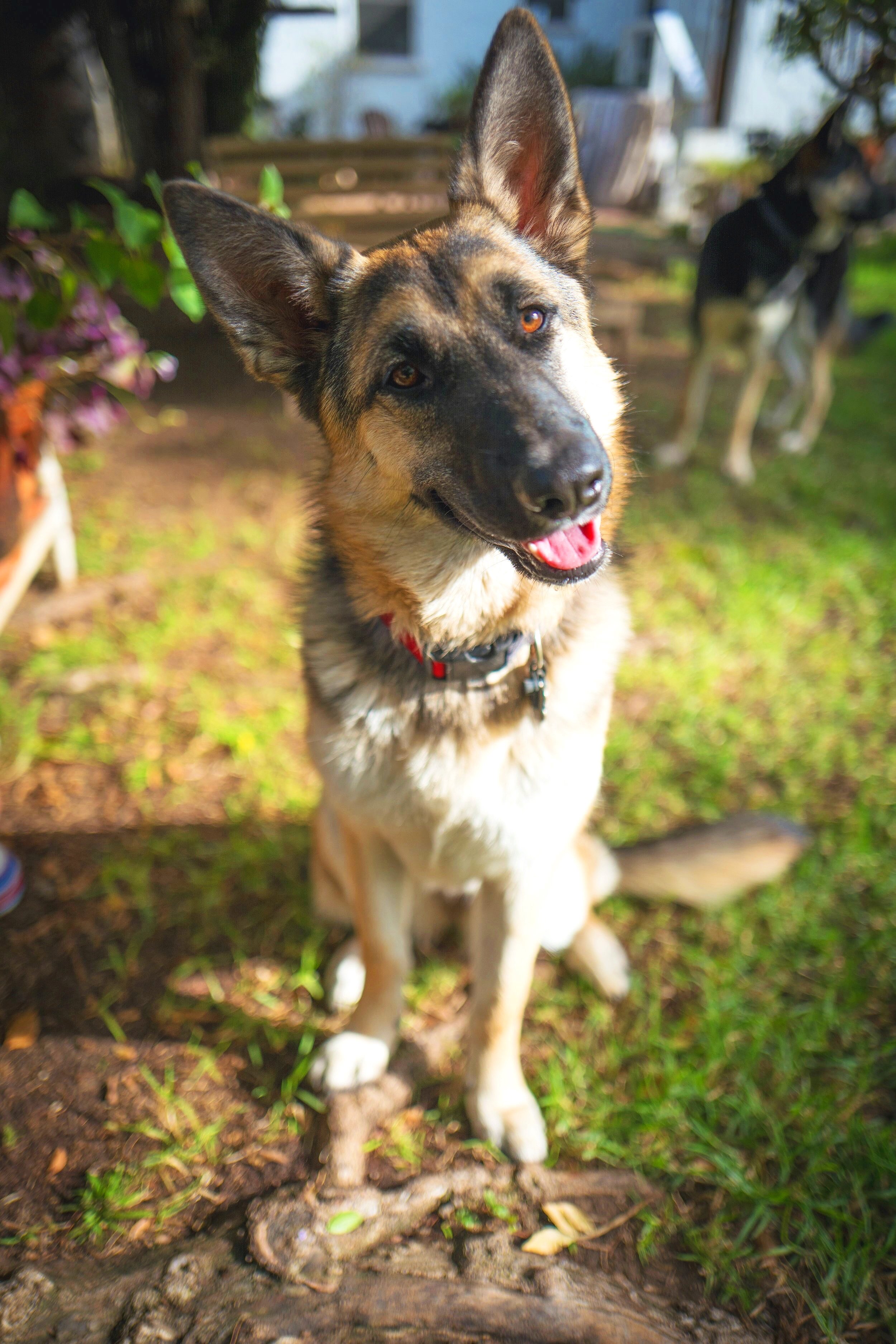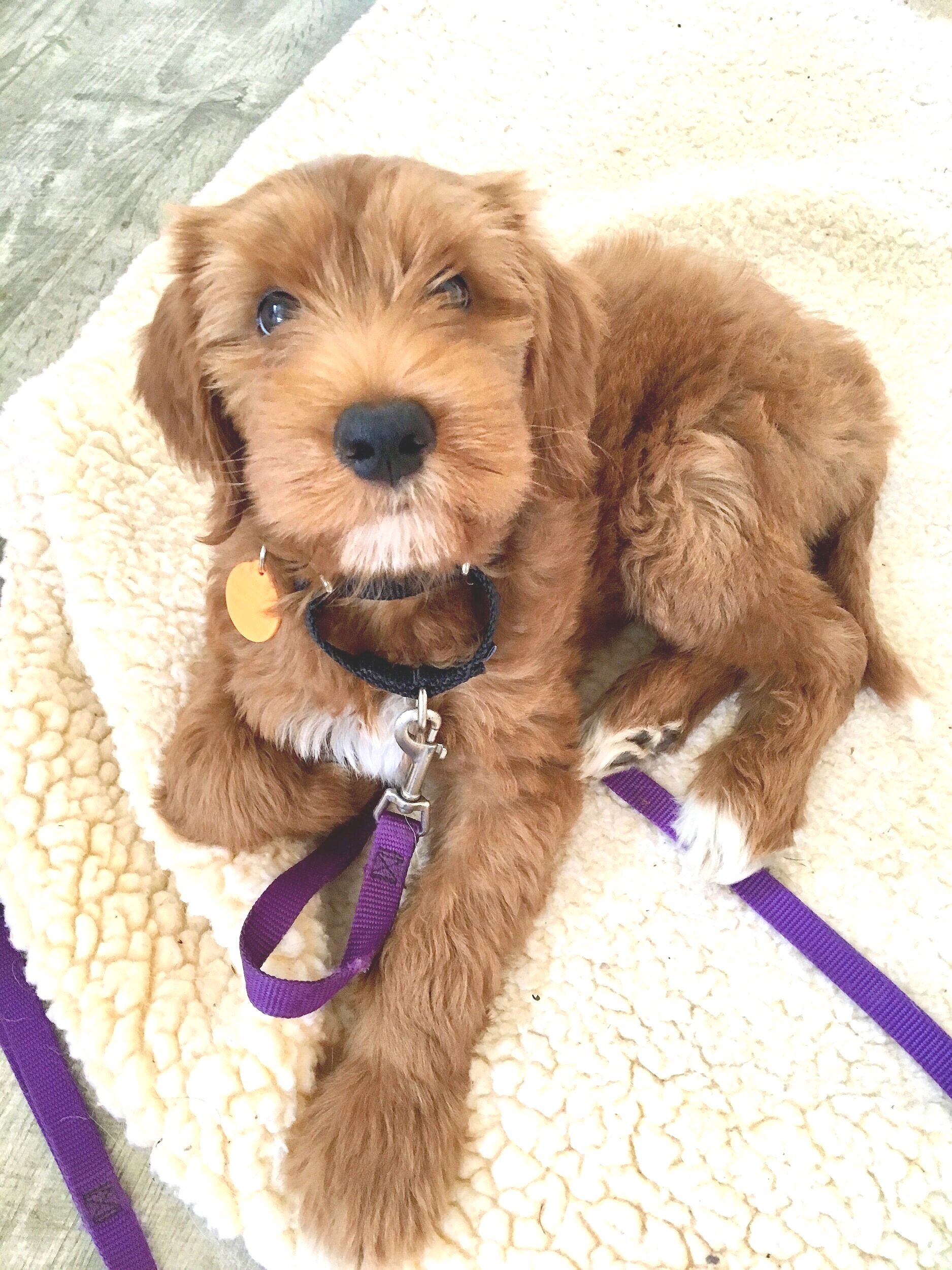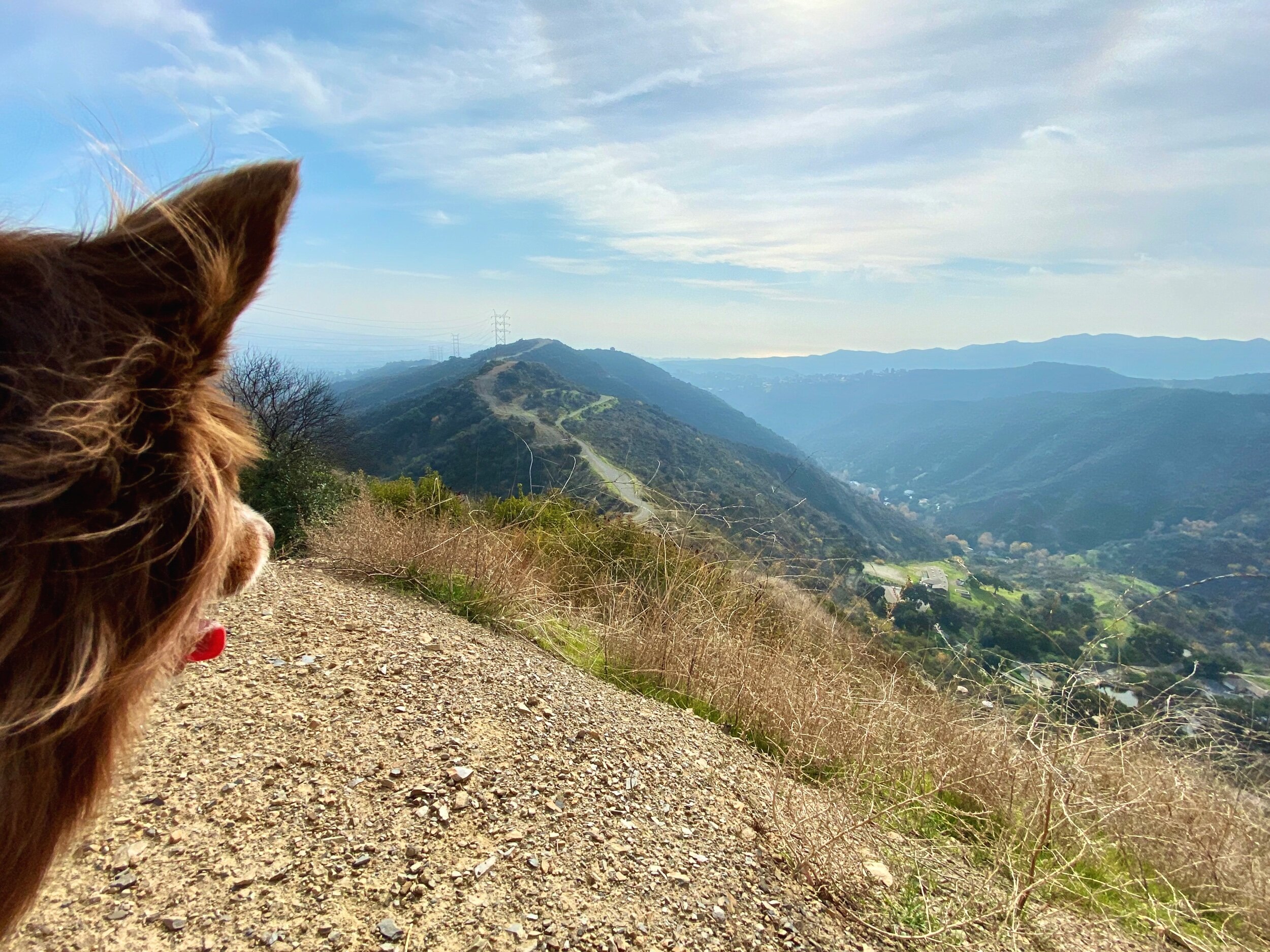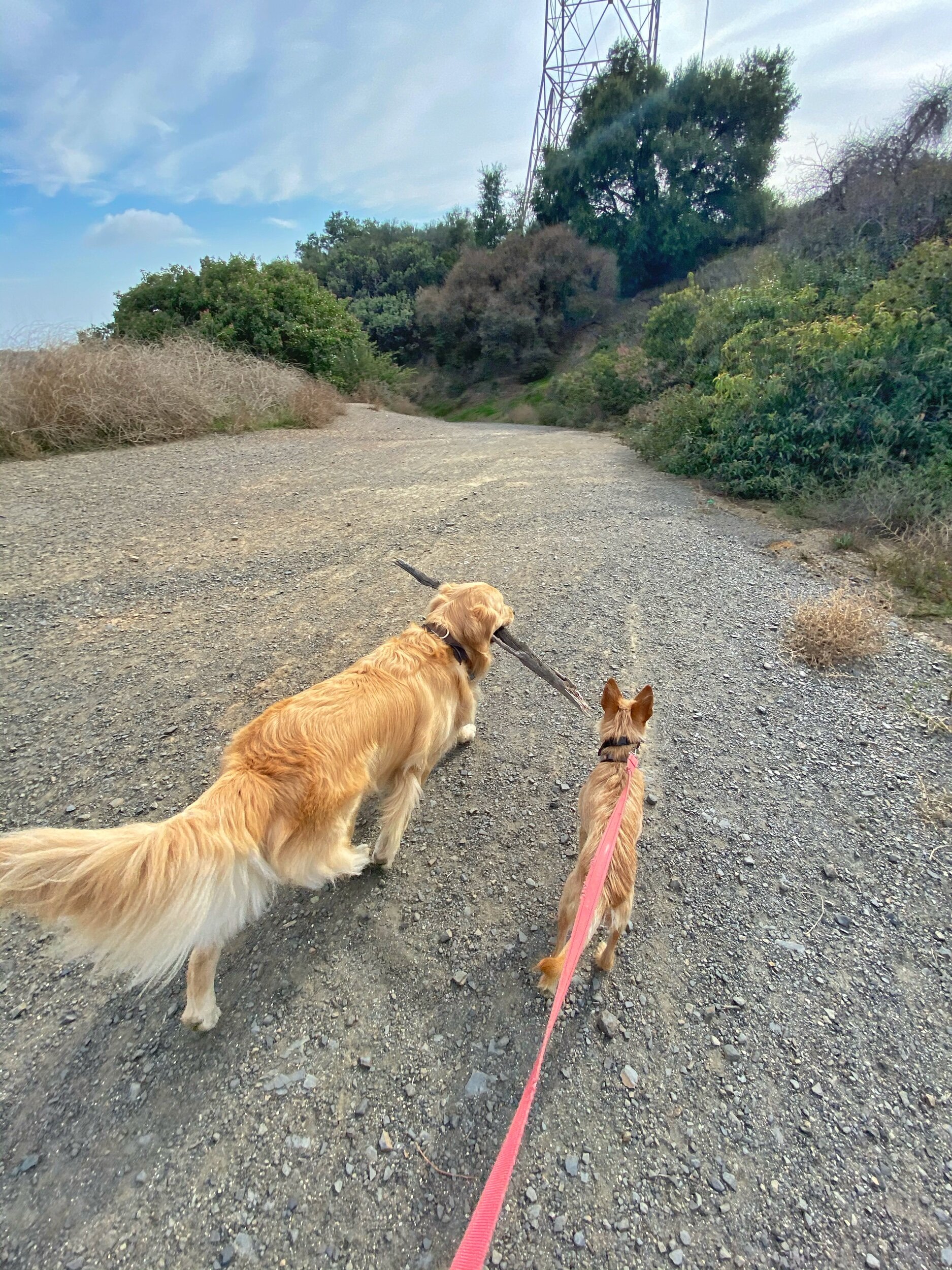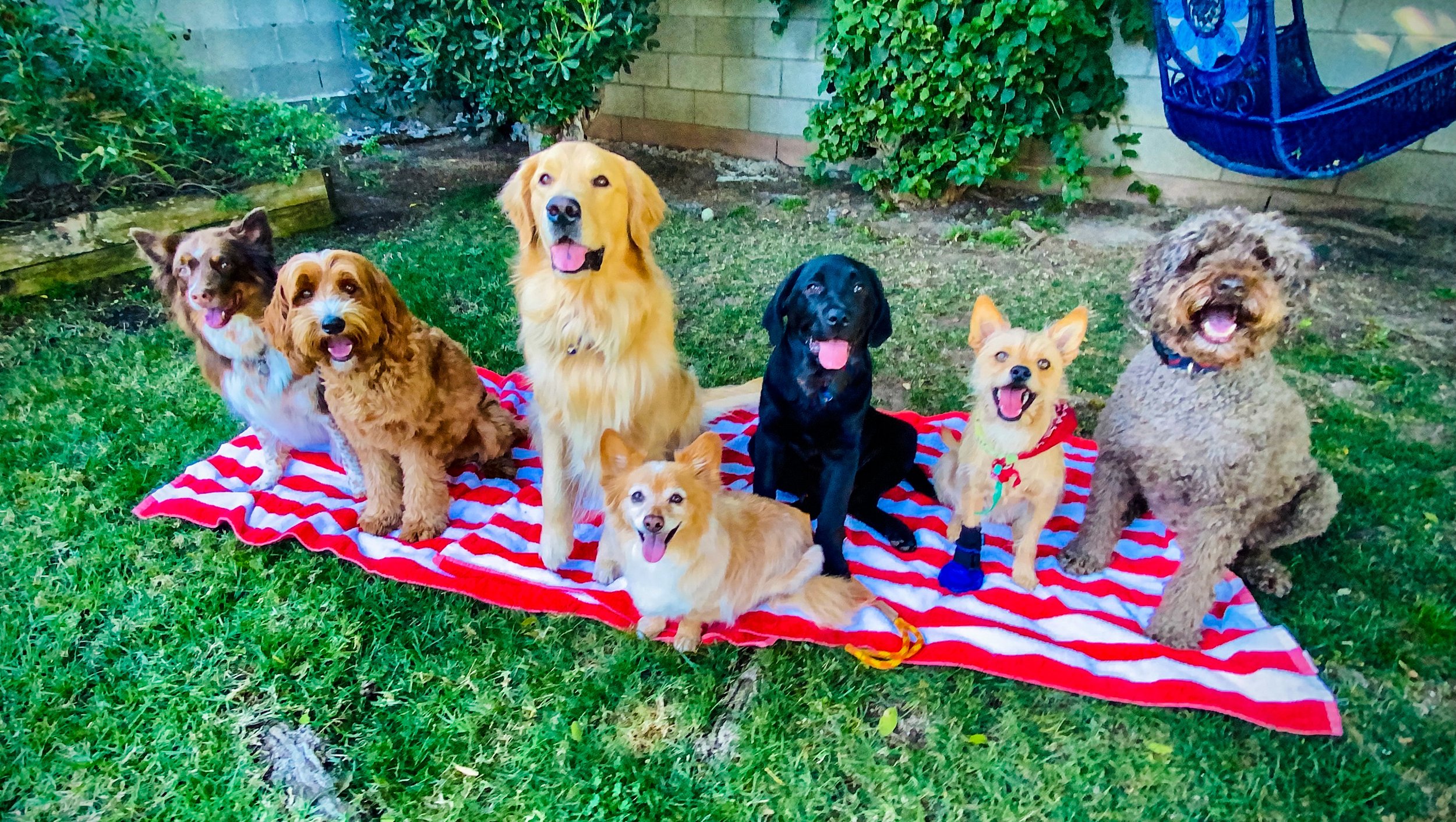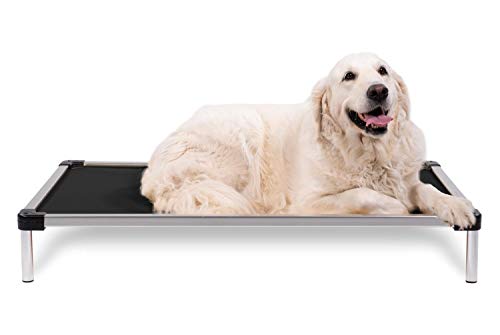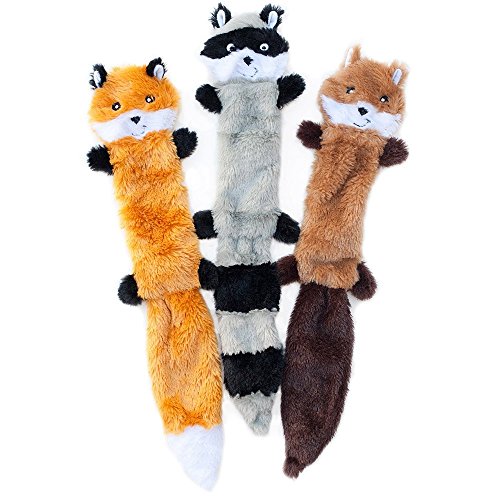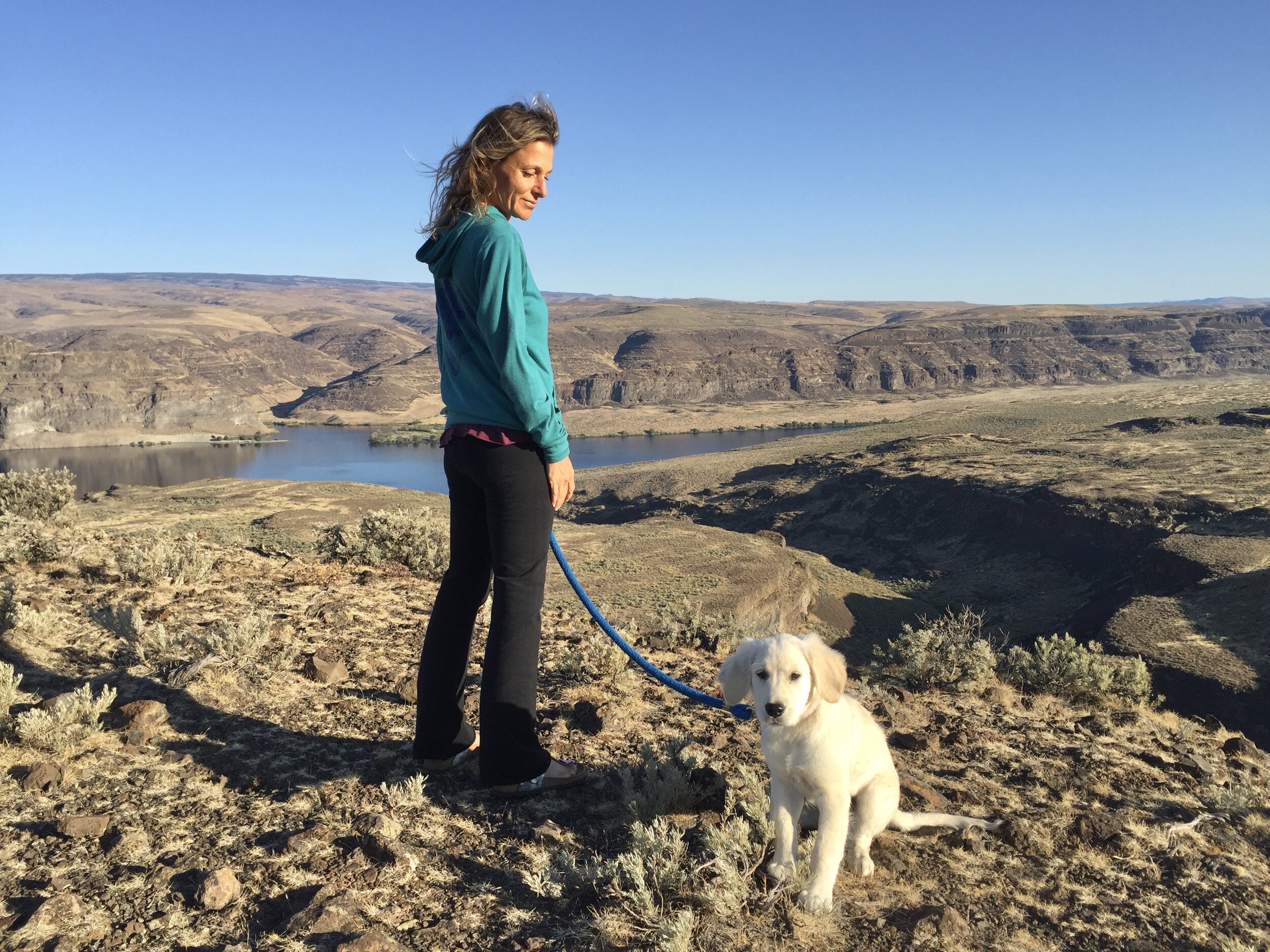
.01
Hello & Welcome
Welcome… My name is Brigitte Bard and I live in Santa Monica, California with my exceptionally cool 11 yr old corgi Papillion mix, Mr. Fox, my super sweet 4 yr old terrier mix, Rosie and the bringer of joy, Trixie my 16 month old arctic spitz aka pomsky. I work full time with dogs and their people as a professional dog trainer and canine nutrition and wellness consultant. I specialize in starting puppies off on the right paw with my Early Education Puppy Boarding & Training program which helps establish foundation skills that last a lifetime. I incorporate and offer socialization, exercise, beach excursions & trail hiking as I find these are excellent compliments to private training and a great way to reinforce training as I weave it into a variety of environments and experiences; it' is like sending your dogs to school & camp during the days so they can continue their education in a fun, social, supportive and skillfully supervised environment.
My goal is for you to experience a rewarding relationship with your dog.. During our training sessions I will share skills, tips and knowledge to work through whatever issues or challenges you may be encountering with your dog. And I will strive to make the times your dog is with me as fulfilling, enjoyable, educating and stimulating as possible.
My services and approach to dog training and animal care are holistic taking into consideration your needs as well as those of your dog’s, and I take into account each of your individual personalities and how best to support your training sessions. I am holistic minded which means I take a whole body approach when it comes to my work with dogs. Each element, mind, body and spirit is interconnected therefore if there is an imbalance in one area, it will have an affect on the other areas. Addressing diet for example is just as important to me as behavior and training. If your dog is not comfortable due to an inappropriate or unbalanced diet this imbalance can strongly affect their comfort, behavior and learning comprehension (just as it would affect us humans.)
I choose more natural modalities and approaches when addressing behavior, socialization, diet, lifestyle, fitness, and I design training and wellness protocols specific to each client.
Although each dog possesses characteristics that make them unique, our canines as a species respond well to praise, reward, consistency, respect and structure therefore they respond positively to the tools, games, drills and experience that I share.
I look forward to helping you develop the happiest and healthiest relationship you can have with your canine companion.
Wags & Woofs!
Brigitte, Mr Fox, Rosie & Trixie 🐾
310.773.6336
Left to Right: Pasha, Bosco, Jack, Mr Fox, Rufus, Lola, Zara
.02
DOG TRAINING
“How you lead depends on your attitude, therefore, the power to lead is in your attitude.
Calm, kind, confident & respectfully assertive leaders are offered the respect of their dogs with little effort.“
Creating Desirable Relationships, Behaviors & Skills that Include:
Trust
Respect
Patience
Manners
Signaling
Socialization
Impulse Control
House Breaking
Respect for Boundaries
Proper Leash Walking
& More...
Address & Dissolve Undesirable Behaviors Such as:
Inappropriate Barking
Destructive Chewing
Disrespectful Jumping
Nipping/Biting
Leash Pulling
Aggression
Irrational Fears
Reactivity
Anxiety
etc...
Left to Right: Chavo, Jagger, Pasha, Mr Fox, Jack, Bosco & Zara
Praise & Encouragement, Essential Tools in Training
I train dogs in ways similar to how parents raise children and at times like coaches train their athletes; make it fun, make it easy, be clear, avoid confusion. Follow through, consistency and clarity are key. Let your superstar or beginner know they are making progress, even small steps in the right direction deserve praise.. Identify areas of weakness and strengthen them. Find what is good and make it better if possible. Rules, structure and rewards are put in place for the benefit of dogs just as they are for children and adults. When we are consistent, clear and make learning fun, our dogs learn quickly and respond positively. We must also remember to really encourage our dogs even for small successes or steps in the right direction. Let them know that we are pleased that they are doing what we requested. This encouragement feels good to them like it does to us, and dogs are more likely to try harder like a child that receives encouragement and rewards for their efforts, talents and skills.
Encouragement and praise play a large part in what I do with both my dogs and their people. I focus on guiding dogs to better behavior, manners and improved skills and coach people on how to communicate with their dogs effectively. Just imagine how difficult it is to communicate with someone who speaks a different language. I dissolve the language barrier so-to-speak & help to create a bridge of communication between people and their dogs.
An equally important element of my work is that of enforcing our word. The directions, cues and rules we create for our dogs are not only clear and consistent, they are enforced so that our dogs learn what we are trying to communicate. They quickly learn that what we say, we really mean; i.e. when we say "sit" we mean "sit" because we guide our dog into a sit if they are reluctant rather than let them ignore the direction. our words and signals have real meaning because we back them up with follow-through. When we are clear and consistent and use words, sounds or signals to give an object, action, place etc... a label, our dogs learn these and as a result develop vocabulary that comes in handy.
From Left to Right: May, Rosie, Bosco, Chavo, Lola, Pepper, Pasha, Jagger, Zara, Mr Fox, Chance, Murray, Gus
USING NATURAL REACTIONS & RESPONSES AS TRAINING TOOLS
Even though all dogs have their own unique personalities, they tend to respond similarly to certain situations, just as we humans do -- Take for example how we have the tendency to take a step back or move a step or two away from someone that is just a bit too close... This might seem like a silly example, but this behavior is consistent with most humans who’s boundaries have been crossed or personal space “invaded”. Jerry Seinfeld even dedicated a very funny episode to the “close talker”; the person who gets uncomfortably close when they are talking to someone else. everyone would lean back or take a step or two backwards just to create some space between them and the “close talker”. This is the same thing that we experience when we are in line at the market, bank, post office ext... and someone is standing just a bit too close. They are intruding our personal space and we feel it. By standing so close within our personal space, they are unintentionally creating pressure and discomfort, so we are forced to either move or tell them to please take a step or two back. They are unknowingly (we hope) crossing our boundaries and need a little notice. As soon as they take a step back or we take a step away, we don’t feel that same pressure; we’ve “released” the pressure and it feels MUCH BETTER. Phew. Well, this works the same with dogs. They naturally utilize this notion of pressure and release among one another as do most people (unknowingly) with their dogs. When a dog’s person asks them to sit and the dog doesn’t respond, a frequent natural reaction from the person is to take a step forward toward the dog and lean down into the dog’s space. What this is doing is actually putting subtle pressure on the dog. As soon as the dog responds positively, the natural tendency for most people is to straighten their posture, pulling themselves out of the dogs personal space which ultimately releases the pressure on the dog, a very important part of the process.
I utilize natural responses such as the example above as tools to create desired behaviors and dissolve undesirable behaviors. My goal with each dog is to develop trust and work with these natural responses to get the dogs to cooperate & respond naturally and enthusiastically. My goal with each dog’s person, is to lead by example, show through touch and games how to develop trust with their dogs and share information, skills and techniques that are easy to understand, relate to and integrate into their life.
Mr Fox
Turning Around Dogs who Display a Bit of What I Call
a “PUNK” Attitude...
These are challenges I really enjoy because you can watch the change in the attitude happen quickly, right before your eyes, and you can actually feel the bond strengthen between the dog and their person.
The dog with the “punk” attitude is more often than not, quite smart, very lovable and fun, a bit cocky at times, but doesn’t want to listen and crosses boundaries frequently. He or she can be a bit pushy, gets in their human’s physical spaces through forceful pushing, pawing, jumping, or forceful licking, can have a bit of a hyper-resistant side at times, and may also exhibit certain fears. These dogs tend to also be the types that respond wonderfully to directions when they are rewarded ie. sit, stay, wait, etc... but they think twice before responding when they are aware there is no reward.
If this dog could speak English it would seem as if he or she were saying “I don’t need to nor do I want to listen to you because I don’t have to” “No one really tells me what to do and if they have told me with words, they haven’t found a way to make me, so I just don’t do it.” This is a dog that hasn’t had to follow directions or commands regularly, has not been taught to respect boundaries and often lacks impulse control. The wonderful news is that as soon as they realize that directions, cues or commands are being enforced regularly and consistently (which is key) and that the human they are interacting with now has the “take charge” assertive attitude along with kindness and respect, the “PUNKs” become incredible team players and truly enjoy the experience. The bond is quickly strengthened and a great amount of trust develops. This is one of the most rewarding turnarounds for the dogs and their humans as well as for me.
Left to Right: Pasha, Mr Fox, Jack, Lola, Pepper, Bosco, Chavo, rufus
IMPORTANCE OF IDENTIFYING & RESPECTING POTENTIAL
LEARNING & PHYSICAL DISABILITIES IN DOGS
There are circumstances that need to be taken into consideration when working with and raising dogs that I feel are often overlooked, NEGLECTED or unidentified, and these are underlying physical discomforts and learning disabilities or challenges. Just like some humans have learning disabilities & challenges, so do some dogs and other animals. These learning disabilities or challenges need to be recognized, accepted, respected and dealt with respectfully. Otherwise, training can quickly become abusive to the learning disabled dog.
Examples of Learning Disabilities & Challenges in Dogs:
Blindness or partial blindness
Deafness or Hearing Loss
Sense of Smell weakness - dogs rely heavily on their sense of smell
Autistic-like behaviors
Lower Level Intelligence
Physical Disabilities
Undiagnosed Illness such as:
Hard to detect heart problems, brain disorders (especially seizures that go unnoticed),
Digestive upset, allergies due to incompatible or improper diet as a result of high carbohydrates, high starch, highly processed or poor quality ingredients,
This is a biggy and something I see often. A dog might be struggling with gastrointestinal issues or allergies which are very uncomfortable and as a result this discomfort gets in the way of their training. Just as humans’ level of focus is challenged when we are not feeling well, the same goes for our pups. This is one of the reasons I always discuss diet and nutrition with my trainees’ humans and offer species appropriate whole food diet recommendations. Not only do we want to ease discomfort we want to improve overall health and wellness for our fur-kiddos so they can thrive.
Age and therefore mind health :
Just like people, dogs can learn something new at any age, but age does need to be considered depending on what is being taught. As an animal ages the rest of his or her body naturally begins to slow down and become weaker including the mind. Let's face it, minds are similar in many ways regardless of species. Like an engine in our car or hard drive in our computer a brain tends to slow down with age in every species of animal, so this is something to consider and be compassionate about when working with an older dog.
Junie!
.03
Brigitte's Essential Puppy Training
Foundation Skills That Will Last A Lifetime
“Get to know your little companion & build your relationship on a foundation of love, trust, respect & encouragement. Quickly you will find yourself in one of the most rewarding relationships you will ever have.”
Confidence Building
Impulse Control
Proper Leash Walking
Beginning Focus & Attention
Boundary Awareness & Respect
Identifying & Addressing Undesirable Behaviors Early
such as: Barking, Fear Aggression, Leash Pulling etc...
Dissolving Irrational Fears
Beginning Puppy Manners & Foundation Skills:
Sit, Stay, Wait, Lay Down, Leave It, Off,
Come, Out, Close, Place,
Go To Your Bed / Den / Place etc...
House Breaking (ring bell to signal)
Puppy Fun:
Paw, High Five, Lay Down, Roll Over,
Frisbee, Ball Retrieval & Catch,
&
Other Fun Puppy Stuff...
TEDDY
Puppies begin learning from the moment they are born. They learn from their mother as well as their litter mates about boundaries, bite inhibition, play, socialization, etc... their experiences the early stages of essential behaviors and social skills. A pup learns about bite inhibition, how to interact with other pups, boundaries etc... It is crucial that when we bring dogs into our world, that we continue to support their developmental process by providingimportantlessons and guidance during every interaction.
By making training fun, your puppy will not only love you for it, but you will be strengthening your bond & your puppy will learn early on, quickly and enthusiastically what is appropriate behavior and is not. This is how mothers teach their children (pups & human) how to live properly within their society.
My goal when working with you & your puppy isto guide you to the best most rewarding relationship possible. I will share with you games to play with your pup that will strengthen your relationship and will teach your puppy skills as wells as to understand and respect boundaries and manners. I will also show you how to set consistent boundaries, and how being kind as well as respectfully assertive reinforces your leadership . You will be building your puppy’s self esteem in balanced & fun ways, so your puppy feels comfortable within his or her own place in your family/pack.
SOME TIPS TO CONSIDER WHEN TRAINING YOUR PUPPY:
Make Training Fun & Play Games.
Be Kind, Be Consistent, Be Clear & Be Supportive.
Keep sessions short & focus on one exercise, drill, game, etc... repeating it several times for that determined period.
Take short breaks during a training session.
Encourage your puppy & reward with praise. Treats are good rewards too, but don’t go overboard; make them tiny, healthy & special and use them irregularly. You want your pup to want to do things for YOU, not for treats. Remember, your goal is to develop a healthy relationship between you and your dog based on respect & love.
Even the smallest step in the right direction is a step in the right direction & worthy of praise.
Be clear with your vocal tones. A correction/direction tone should be low, short & sharp. A praising tone should be sweet & loving but also mellow. Remember, like begets like. If you want to calm your puppy or keep your puppy calm, take a calming deep breath, stay calm & praise with a sweet, smooth, soothing tone rather than a happy, excited tone which is likely topick up your puppy’s energy (this type of tone is great for getting your pup to come to you or supporting a training involving active behavior where increased momentum is being encouraged.)
Be patient with your puppy as well as yourself. Learning a new language, behaviors & skills takes a little time. Your puppy will pick up on what you want him or her to do when you choose one goal for your training period, stay focused on it and remain clear & consistent.
By teaching from a place of leadership, love, patience & trust you will create a strong foundation from which to build a solid loving relationship that will continue to develop & evolve throughout your puppies life.
.04
Day School
As a supplement to Brigitte's Private Dog Training and Board & Train program, Brigitte offers Day School which incorporates regular Socialization, Guided Play Groups with training mixed in, exercise in the form of off-leash trail hikes in the Santa Monica mountains as well as urban leash-hikes in the Pacific Palisades. The Day School is a fun way to reinforce the training a dog is getting in private training as well as what was learned during board & Train while also giving your dog the exercise, socialization and love during the day that is so essential to his or her overall wellbeing.
Participating in regular group activities & socialization under the guidance and direction of a dog trainer not only supplements and reinforces the dog training, it enables the dog's training to advance more quickly as the dog is being trained and closely supervised in a variety of enjoyable situations outside the home on and off leash with a variety of distractions and trainable moments thrown into the mix. Brigitte weaves trainings into fun and stimulating experiences as this enhances not only a dog’s intelligence and self confidence but more importantly his or her enjoyment and spirit.
Please contact us for more information
🐾
310.773.6336
L to R: Bosco, Pasha, Mr Fox, Pepper, Loki 🐾
.05
overnight boarding & Holistic Pet care
Please contact us if you are in need of overnight boarding for your pup or if you are looking for a more holistic natural way to support your dog’s diet, health and overall wellbeing..
🐾
.06
HAPPY HOUNDS
Some of BRIGITTE’S FAVORITE Pet Products
(We are adding new products daily so check back soon)
Disclaimer: This website uses affiliate links, meaning: at no additional cost to you, we earn a small commission if you click-through and make a purchase. As an Amazon & CHEWY Associate I earn from qualifying purchases. We only feature products that we believe in and use ourselves. Your support means the world to us and allows us to host this website. Thank you! 🐾
Pens • Gates • beds • “place” MATS • crates & more
• freeze dried foods • Training Treats •
• treat pouches • Training Leads & more
Brigitte recommends nutritionally complete Home prepared, frozen or Fresh raw meat diets for dogs & cats or gently cooked diets. Ingredient sourcing is a significant factor in Brigitte’s selection of products along with the formulation. When frozen or fresh raw is not available, freeze dried raw is an excellent option. Freeze dried raw is suitable for travel and great for training, but keep in mind that freeze dried must be rehydrated with filtered water or bone broth and is more expensive that frozen or fresh raw meat diets. These are the freeze dried foods Brigitte recommends, Small Batch, Primal and Answers make high quality frozen raw recipes similar to the freeze dried recipes you see below. You can find the frozen foods at your local boutique pet stores and small batch and answers offer bulk options as well..
88% humanely raised and harvested turkey, 10% organic produce, 2% natural supplements
turkey, turkey necks, turkey livers, turkey hearts, turkey gizzards, organic squash, organic celery, organic cauliflower, organic green beans, organic bok choy, salmon oil, organic apple cider vinegar, organic kelp*, organic dandelion, mixed tocopherols, organic cilantro, organic bee pollen, organic wheat grass, organic bilberry, organic garlic, organic thyme, organic oregano, vitamin e supplement
Neutral Protein
SMALL BATCH TURKEY Bites
cooling 88% humanely raised and harvested pork, 10% organic produce, 2% natural supplements
pork, pork hearts, pork livers, pork kidneys, pork bones, organic butternut squash, organic celery, organic bok choy, organic green beans, organic cauliflower, organic dandelion greens, salmon oil, organic apple cider vinegar, organic kelp*, organic bee pollen, organic bilberry, organic wheat grass, organic garlic, organic oregano, organic thyme, vitamin e supplement
Cooling Protein
Small Batch Pets duck bites
neutral 88% humanely raised grass fed beef, 10% organic produce, 2% natural supplements
beef hearts, beef livers, beef kidneys, beef bones, organic yams, organic carrots, organic squash, organic broccoli, salmon oil, organic apple cider vinegar, organic kale, organic collards, mixed tocopherols, organic kelp*, organic parsley, organic bee pollen, organic wheat grass, organic bilberry, organic garlic, organic rosemary, organic basil, vitamin e supplement
Neutral Protein
Small Batch Pets beef Bites
Cooling 88% humanely raised and harvested duck, 10% organic produce, 2% natural supplements
duck including bones, duck hearts, duck gizzards, duck livers, organic butternut squash, organic celery, organic bok choy, organic cauliflower, organic green beans, organic dandelion greens, salmon oil, organic apple cider vinegar, mixed tocopherols, organic cilantro, organic kelp*, organic bee pollen, organic bilberry, organic wheat grass, organic garlic, organic oregano, organic thyme, vitamin e supplement
Cooling Protein
Small Batch Pets Rabbit Bites
MAKE YOUR OWN FOOD with this Premium Meat Mixer Dog Food Base Mix - Freeze-Dried Grass-Finished Beef & Organic Veggies, 2.73 lb Bag makes 45 lbs of Homemade Dog Food, Suitable for All Breeds & Ages. Does not contain synthetic vitamins or minerals.
TREATS (YOU CAN USE ANY OF THE ABOVE FOODS AS HEALTHY TREATS AS WELL)
Chews, PUPPY TeEthing Treats & Toys
Spunky Pup Organic Cotton Bunny - Small,
Zippy Paws Happy Hour Crusherz. (single toy) Time to Paw-ty! Crusherz offer the softness of a plush and the fun of crunch all in one toy. The Crusherz come with an empty water bottle & squeaky cap… When the original water bottle is all crunched out, you can replace it with your own and the squeaky cap can be reused and added to any new bottle as well!
the plushes below have heartbeats and some come with heat packs to Help young puppies
transition from their littermates to independence. 🐾
SUPPLEMENts, remedies & topicals
Gently and naturally detoxify and remove yeast with Yeast Guard Proprietary blend of herbs (Pau d'arco, Organic goldenseal, Organic olive leaf, Organic ginger root, Organic fennel, Organic oregano leaf, Organic thyme leaf), C8/C10 MCT Powder
must be combined with proper diet and elimination of environmental irritants for effectiveness. Please contact Brigitte for yeast overgrowth consultation.
travel accessories to Make
traveling with your pet safe & easier
Extra Large Expandable breathable Carrier
15.7"L x 26.8"W x 19.3"H
.07
Wags & Woofs!
We Would Love to Hear from you









